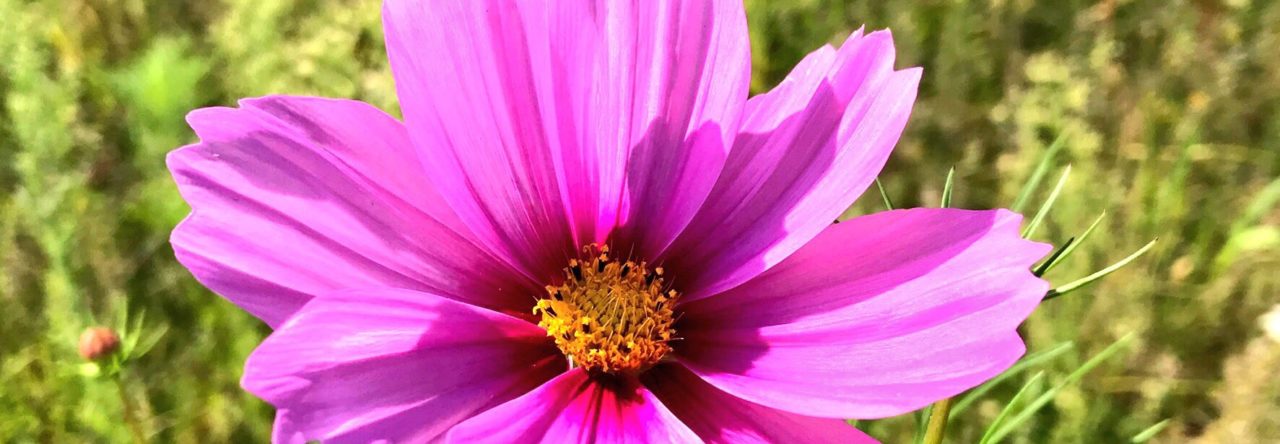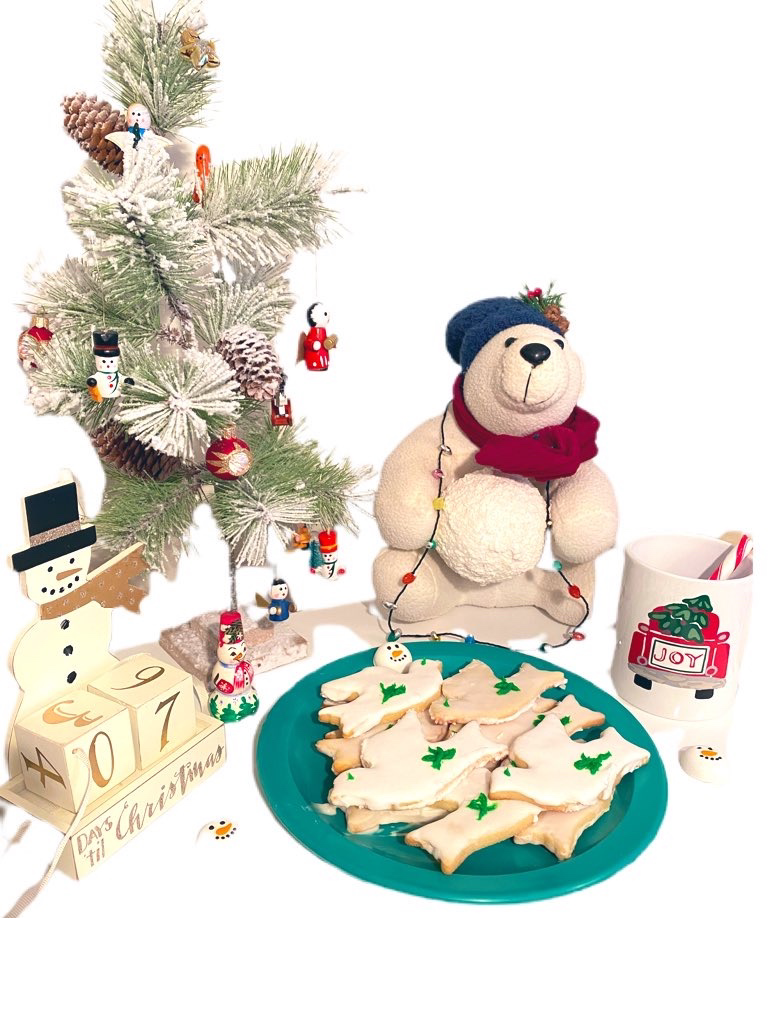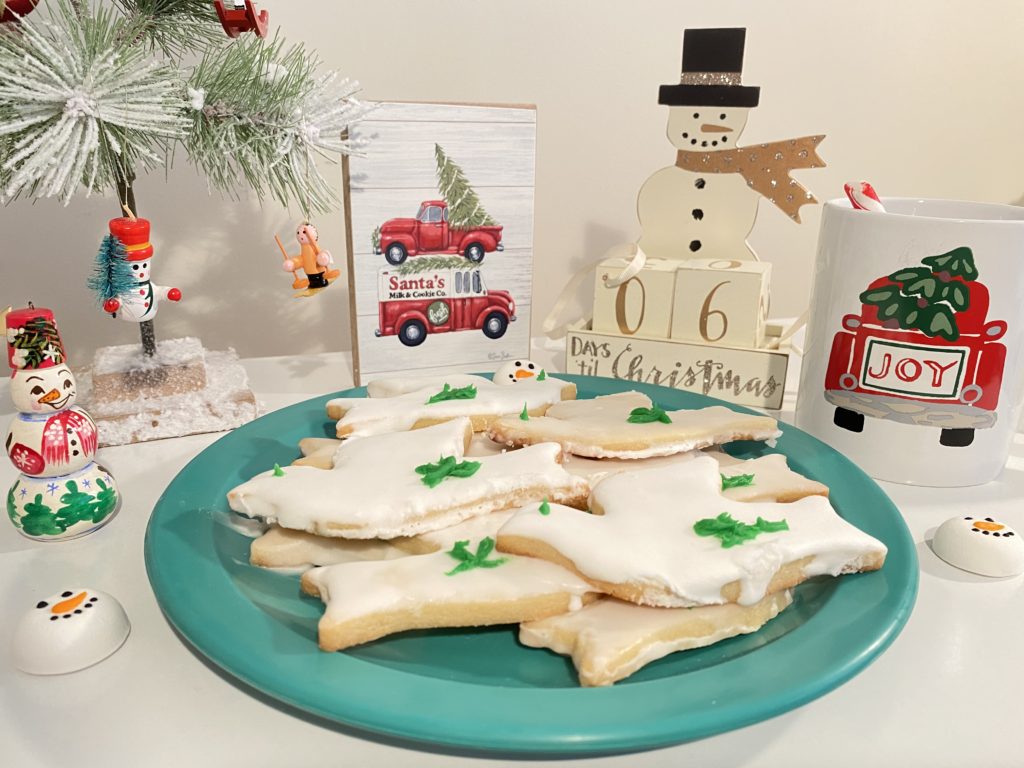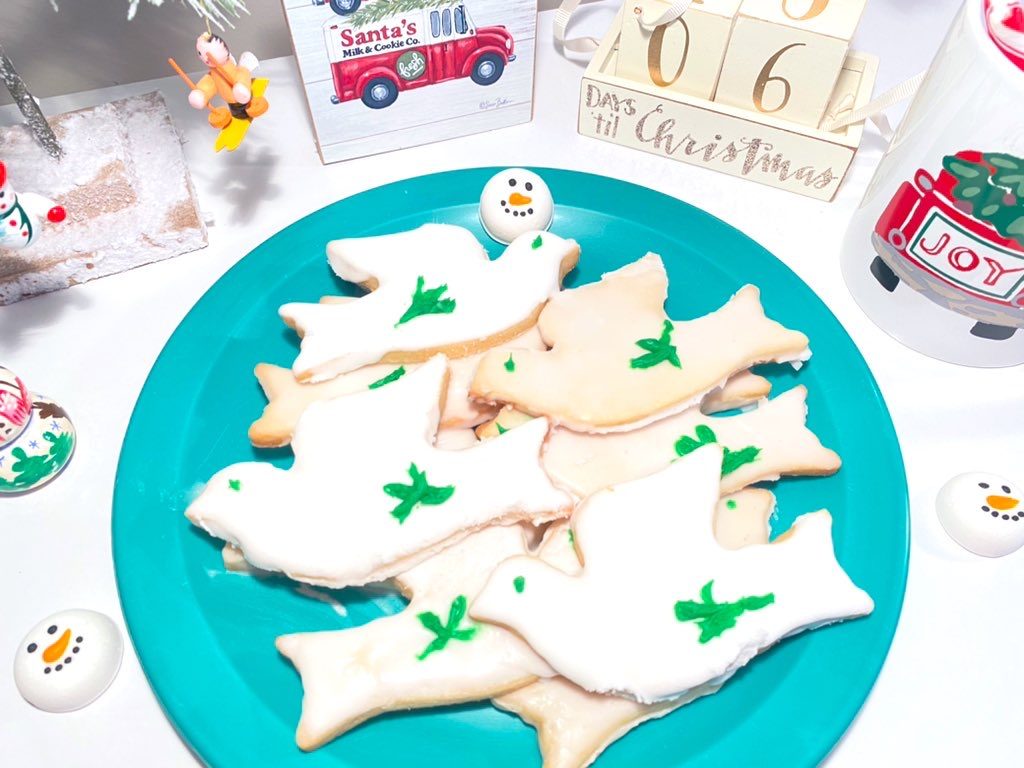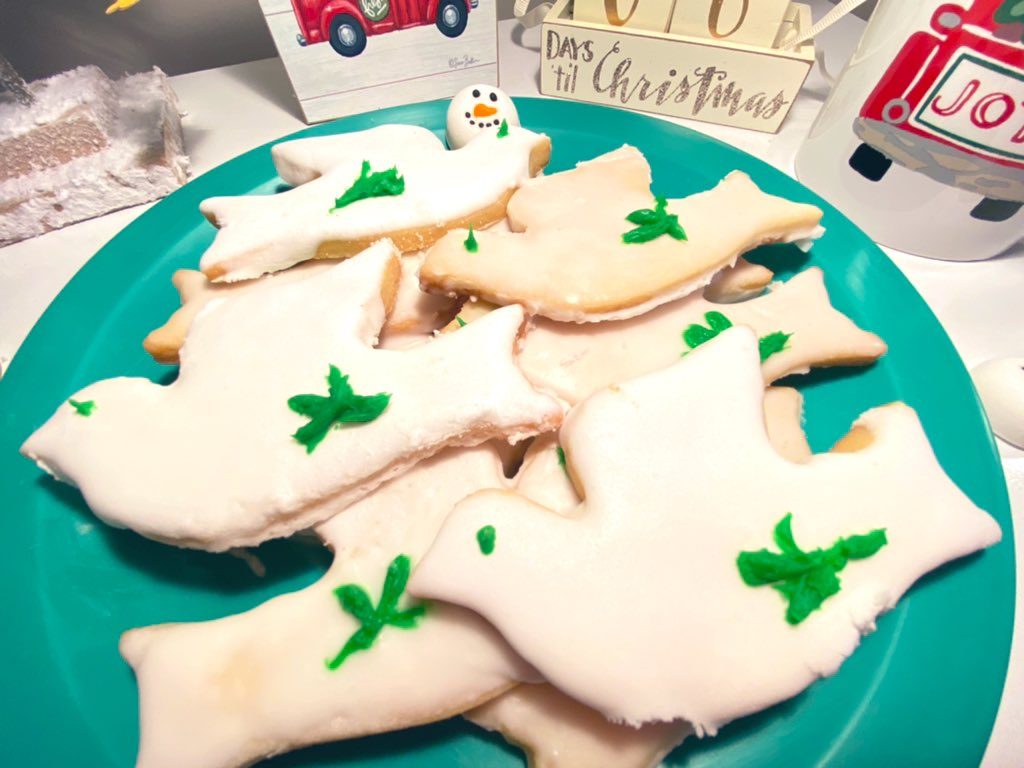“You can tell a lot about a person by the way they handle three things: a rainy day, lost luggage, and tangled Christmas tree lights.” Maya Angelou
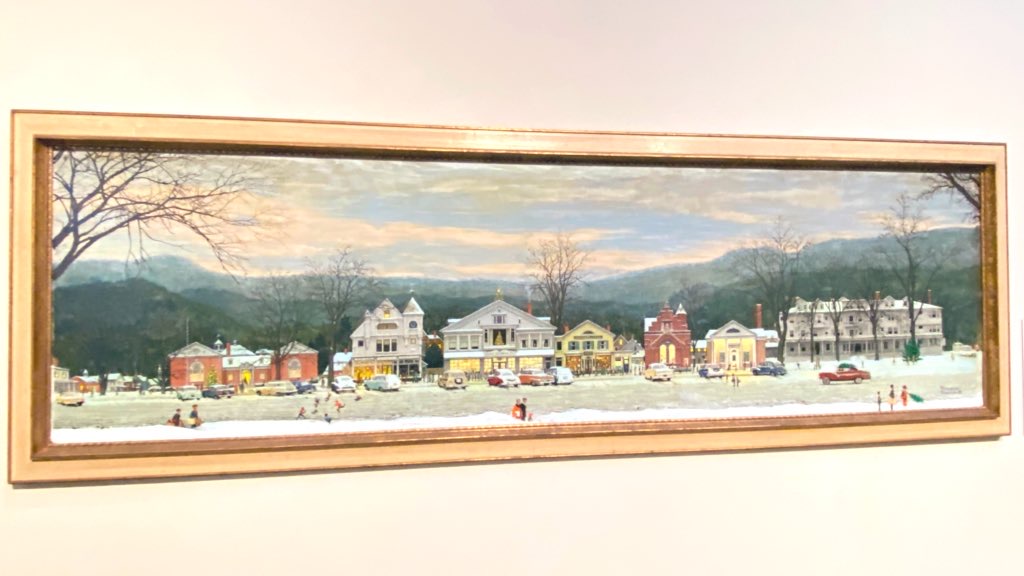
With the speed of a run down a Berkshire ski slope, Christmas has arrived…and gone, less than a month after Thanksgiving this year. The Three Kings still travel towards the star as the Jewish faithful light their menorahs, so here’s a “merry mini” to keep the holiday cheer going.
Each December, the Stockbridge Chamber of Commerce recreates the much-beloved Norman Rockwell painting “Stockbridge Main Street at Christmas,” which was wonderful to experience before the pandemic (“Christmas in Stockbridge”). Despite the rain on that trip, everyone was in great spirits. Returning this Christmas was reassuring that the event is not only back but is even better and more fun for children including a visit with Santa and Mrs. Claus, a petting zoo, and face painting. Both on the first trip and this, visitors were friendly and considerate, offering to take photos of each other by the classic cars. (Classic car fans will enjoy chatting with proud owners of vintage cars, some from New Jersey.) Not only do the details from Norman Rockwell’s beloved painting come to life, but so does the vibe, which he might enjoy even more. For anyone looking for the holiday spirit, this is the perfect event to experience.
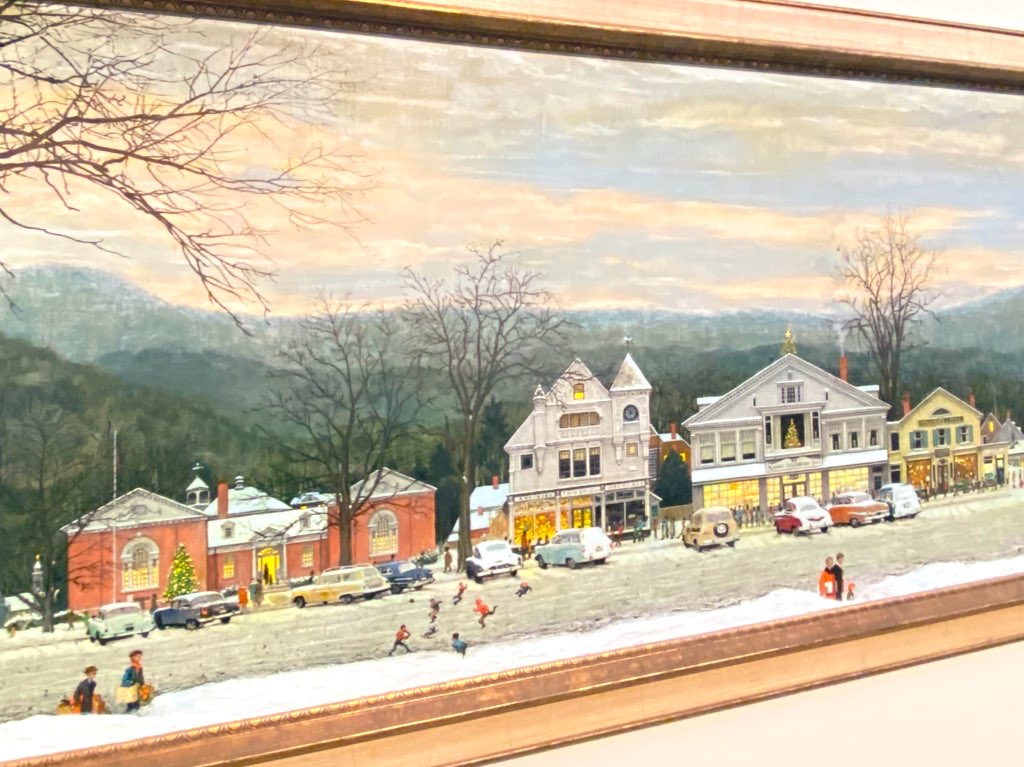
Close-up with Christmas tree in the second-floor window (Norman’s former studio) over the General Store (slightly lightened here for visibility)
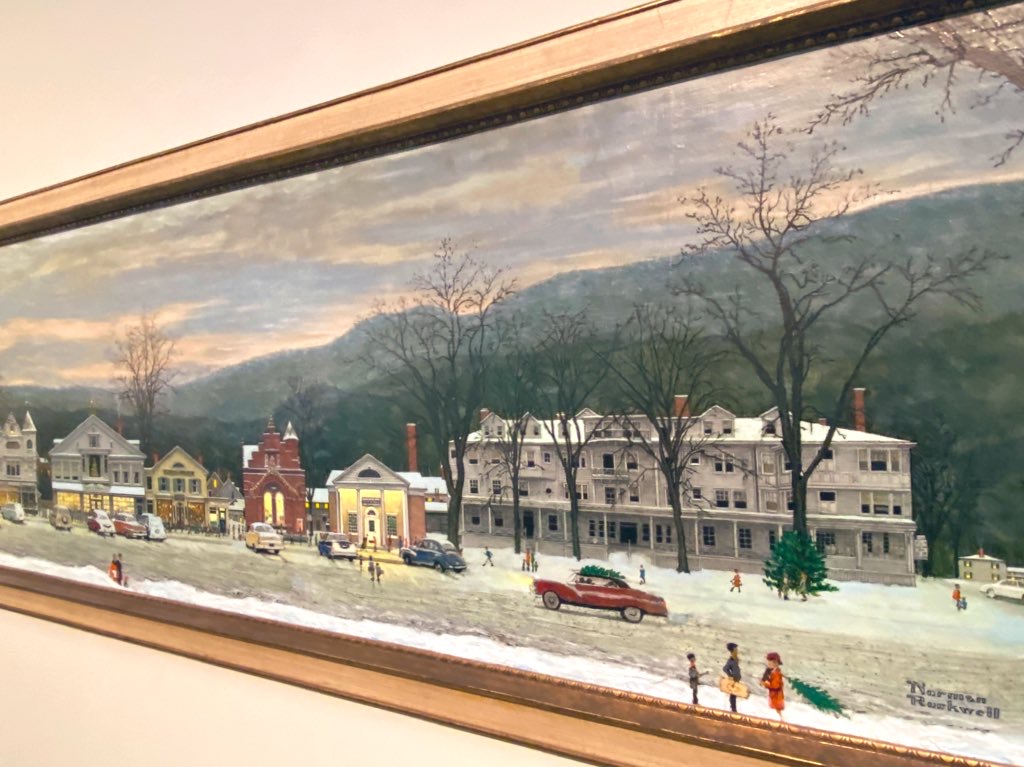
The artist warms the darkened Red Lion Inn, formerly closed in the winter, with children and a Christmas tree-topped red Mercury
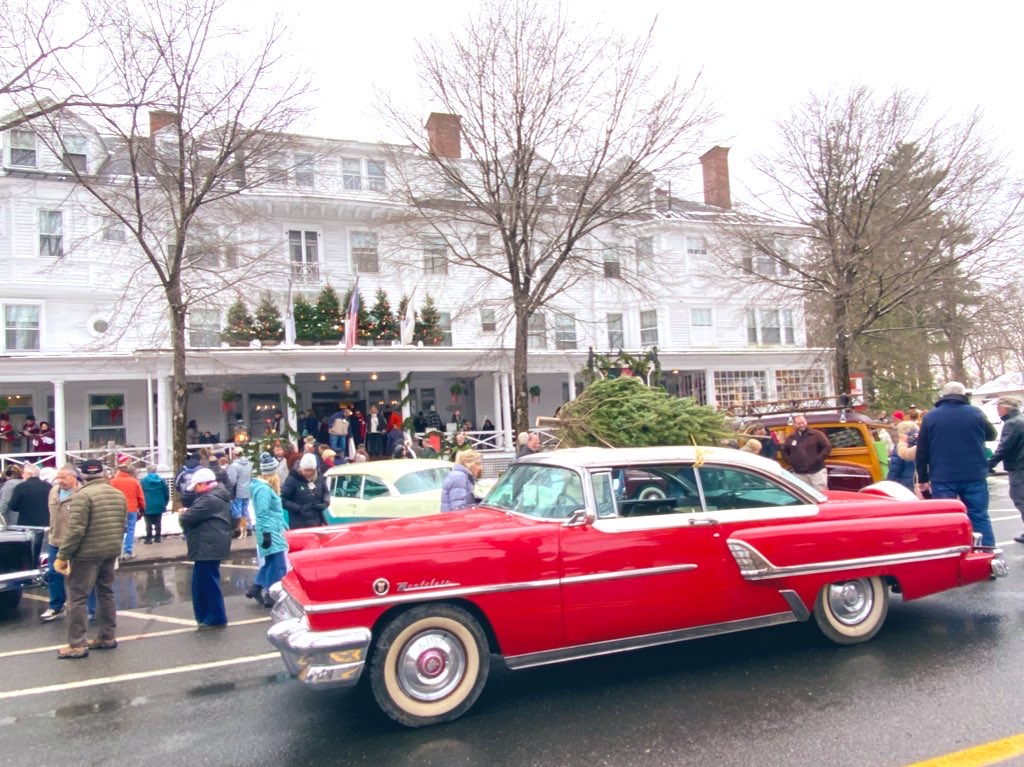
The Mercury comes to life along with the Red Lion Inn
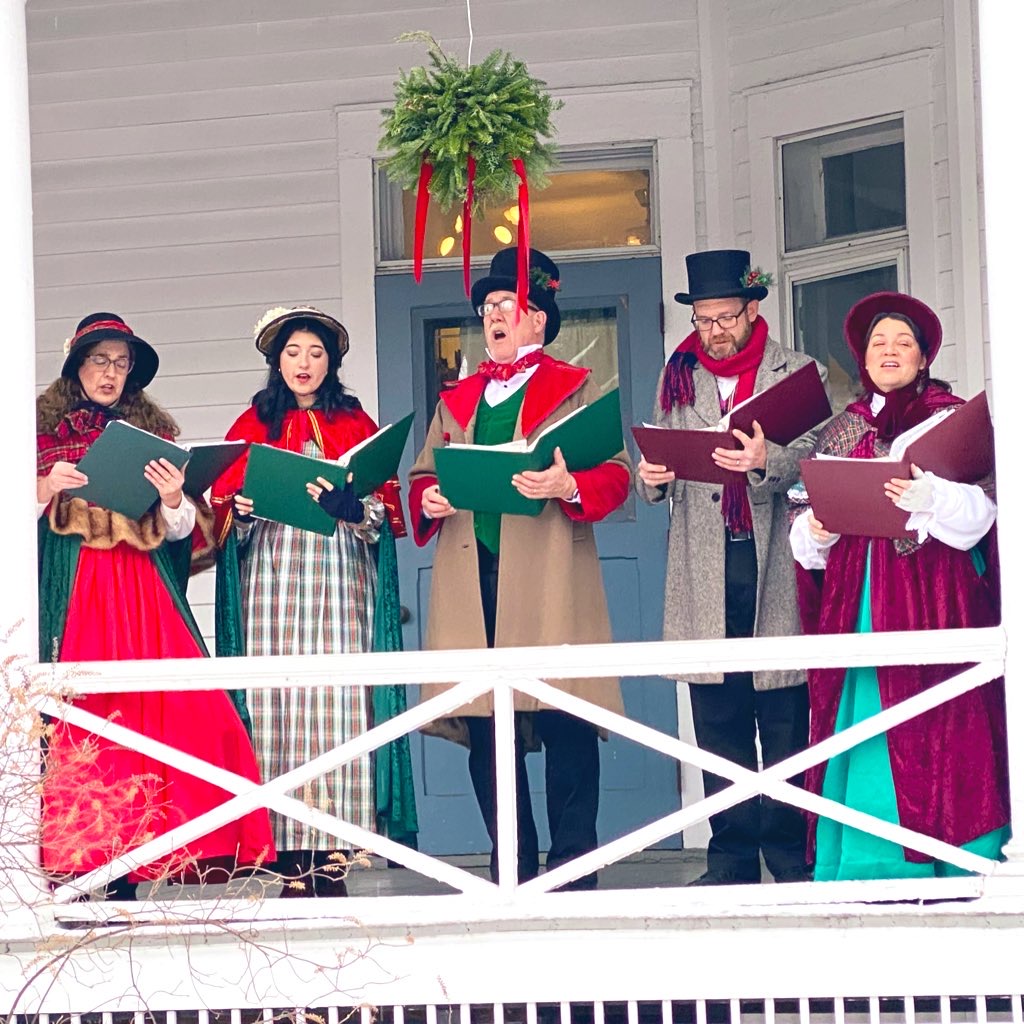
Victorian carolers on the porch of the Red Lion Inn
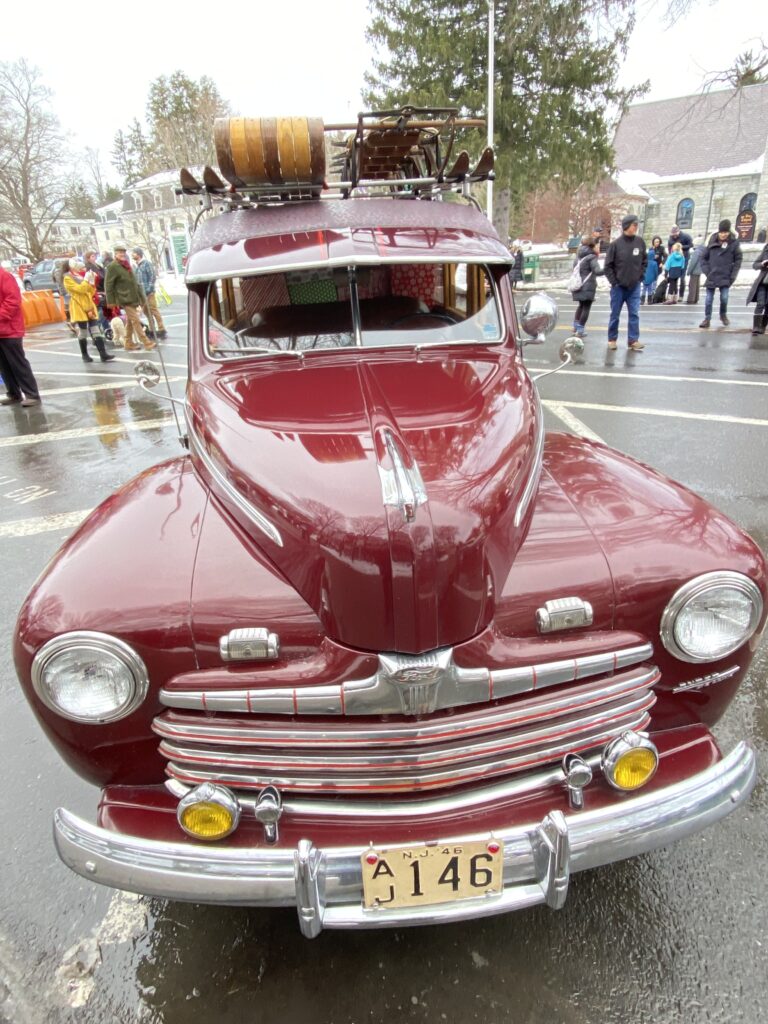
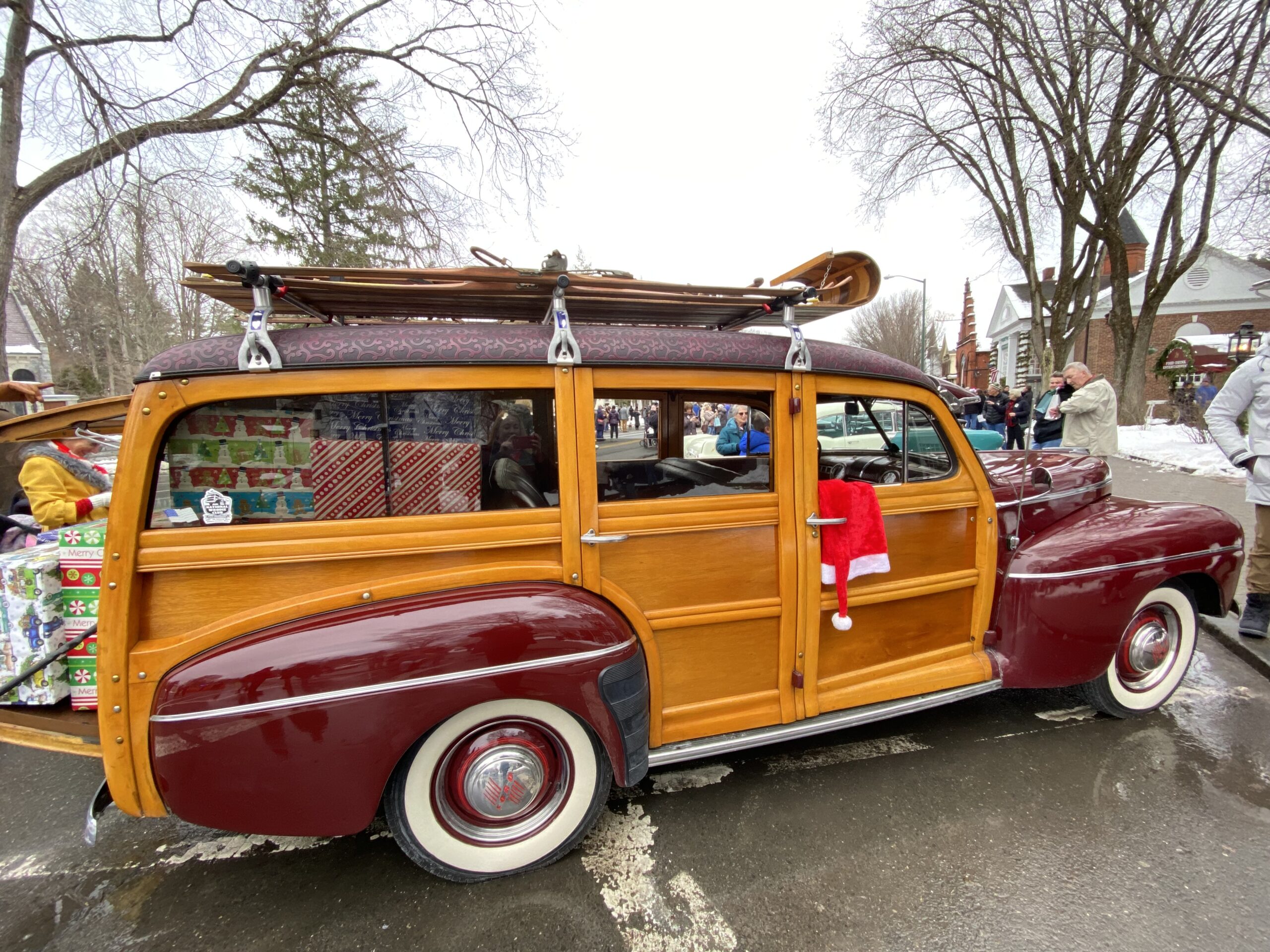
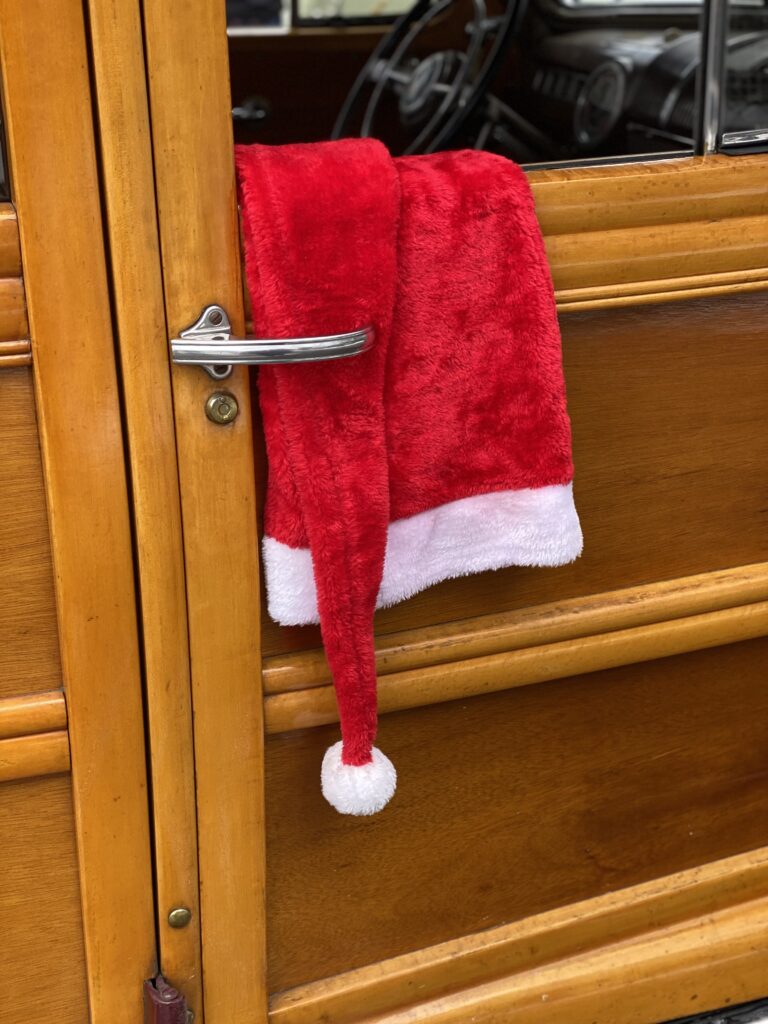
The charm is in the details
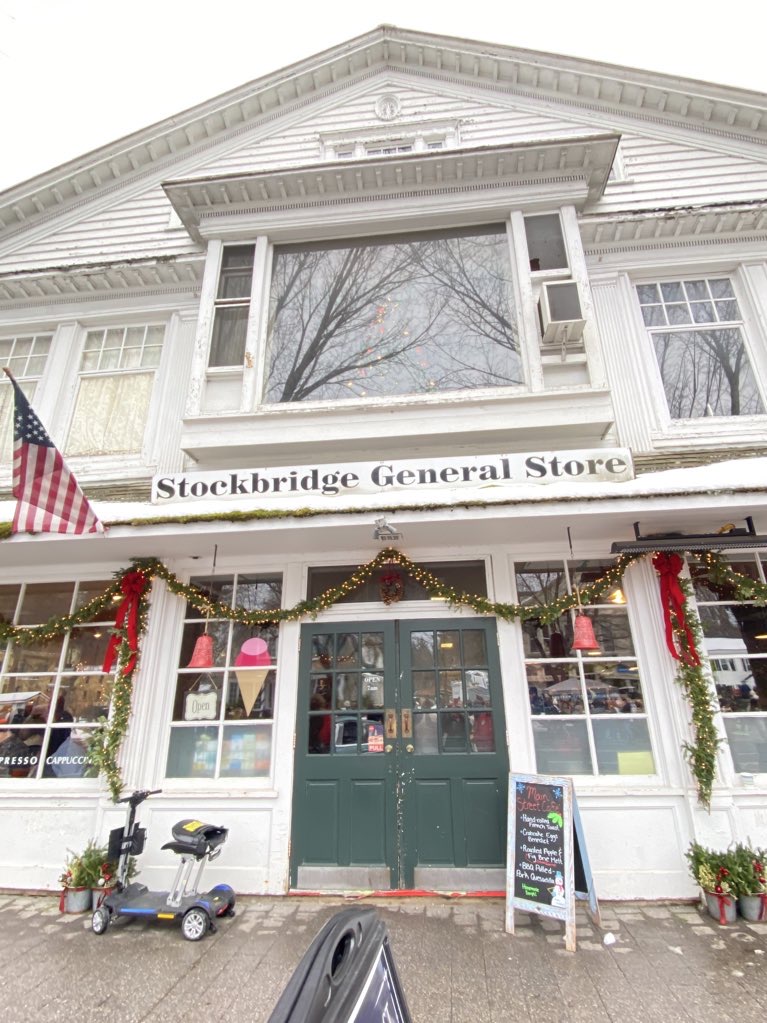
Norman’s former studio above the General Store (with a 🎄); he later had a studio behind his home on South Street, which is now part of the nearby Norman Rockwell Museum.
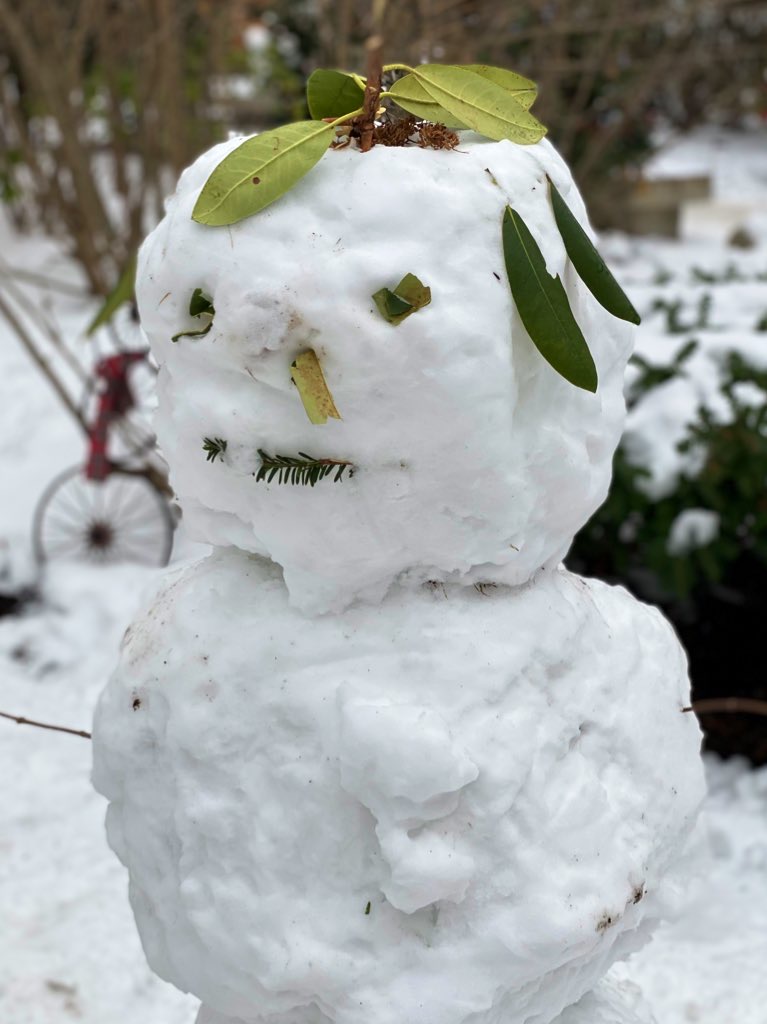
Winter chapeau
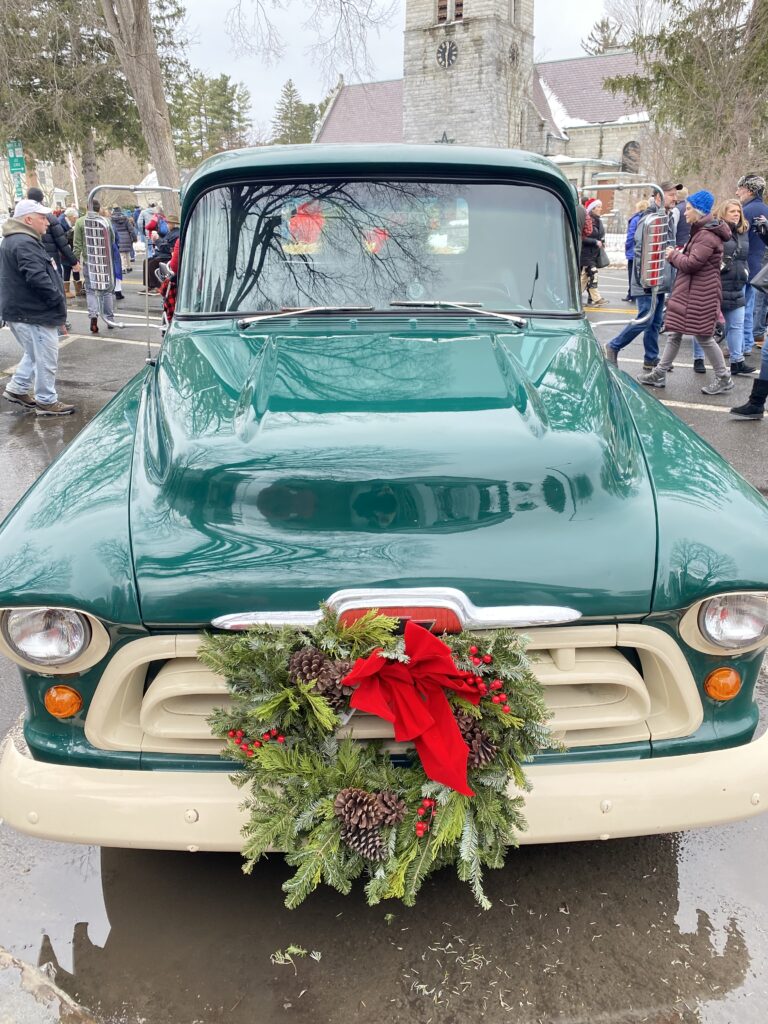
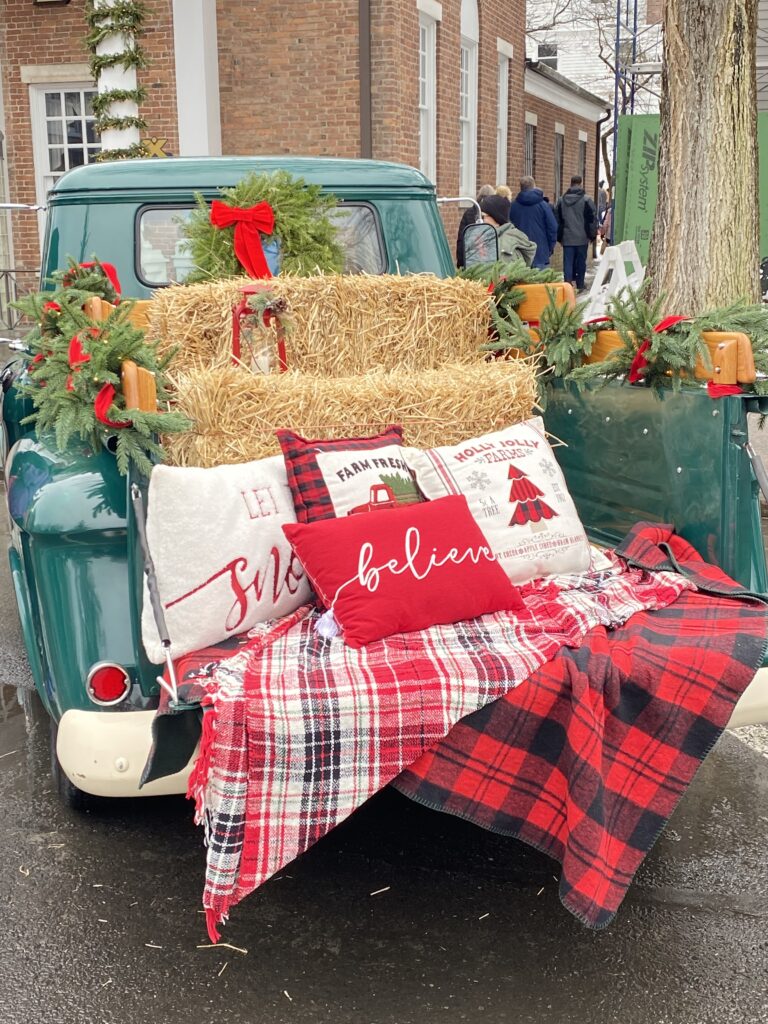
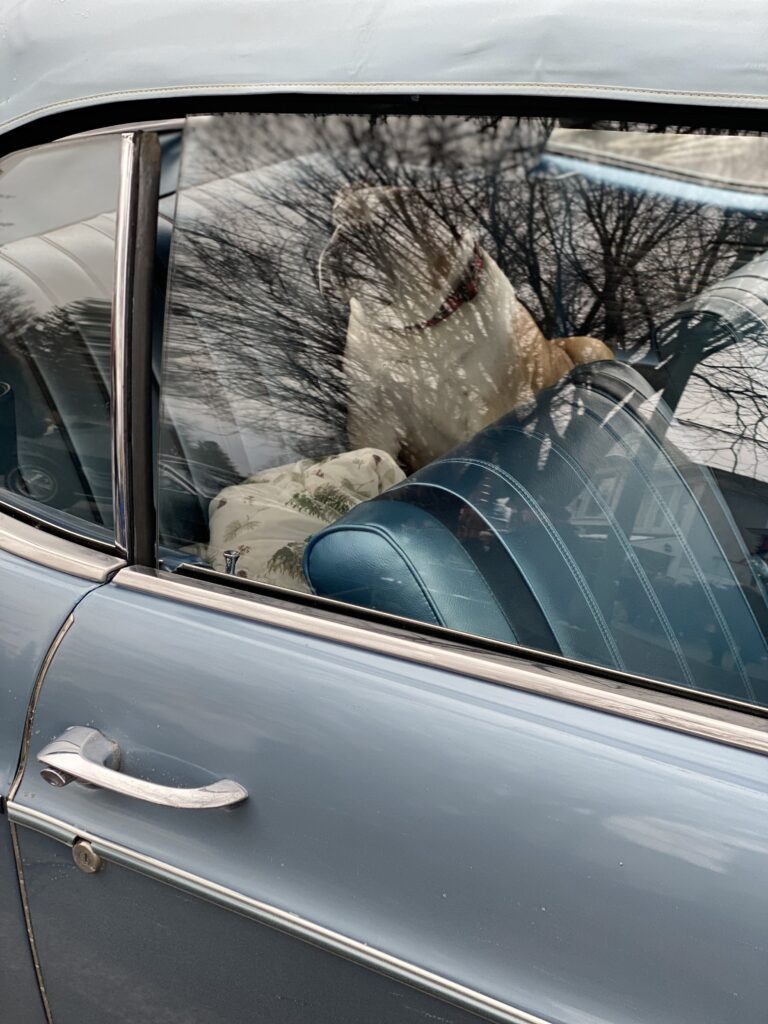
Cute surprise 🐾
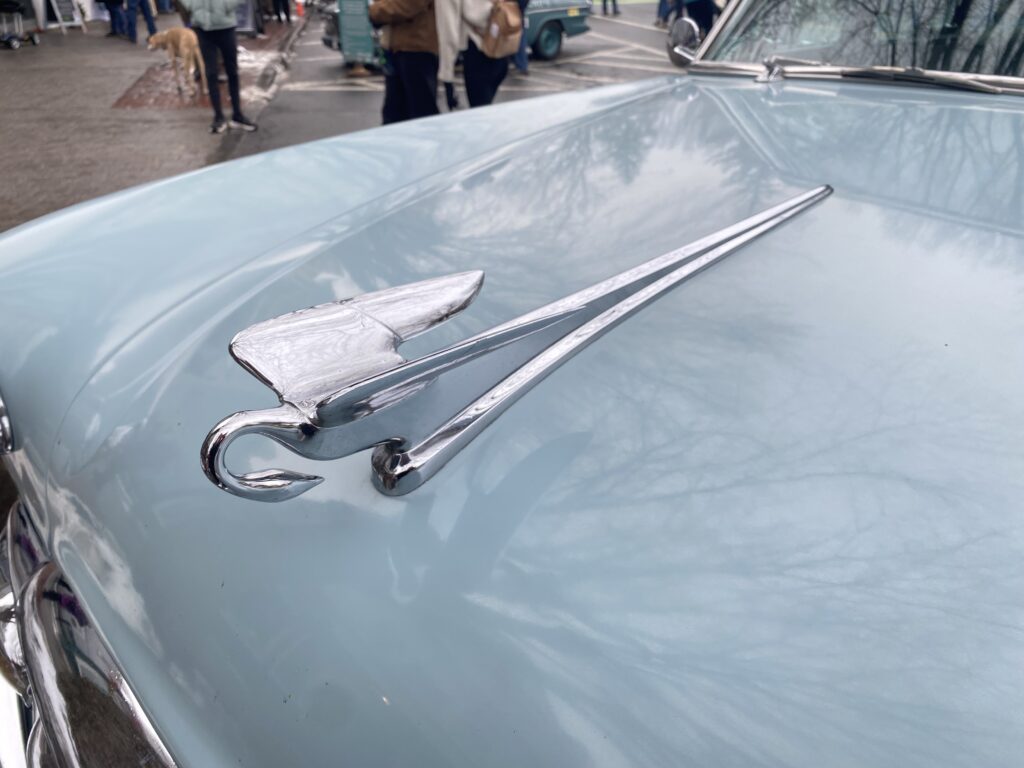
Beautiful detail
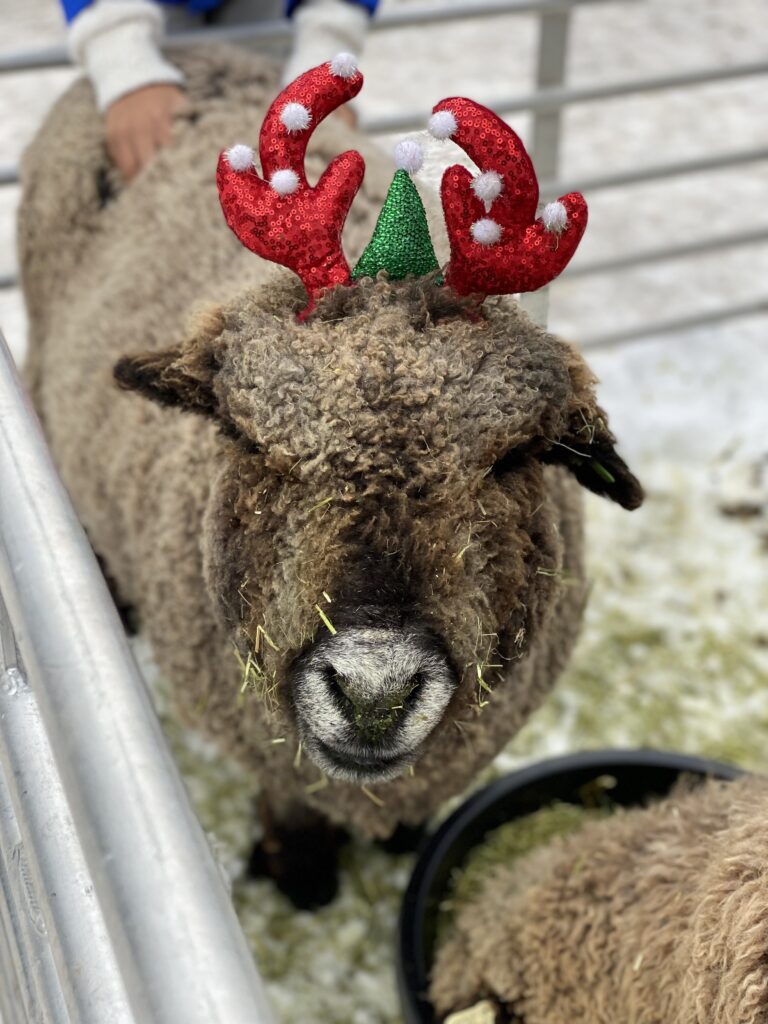
Santa’s reindeer at the petting zoo
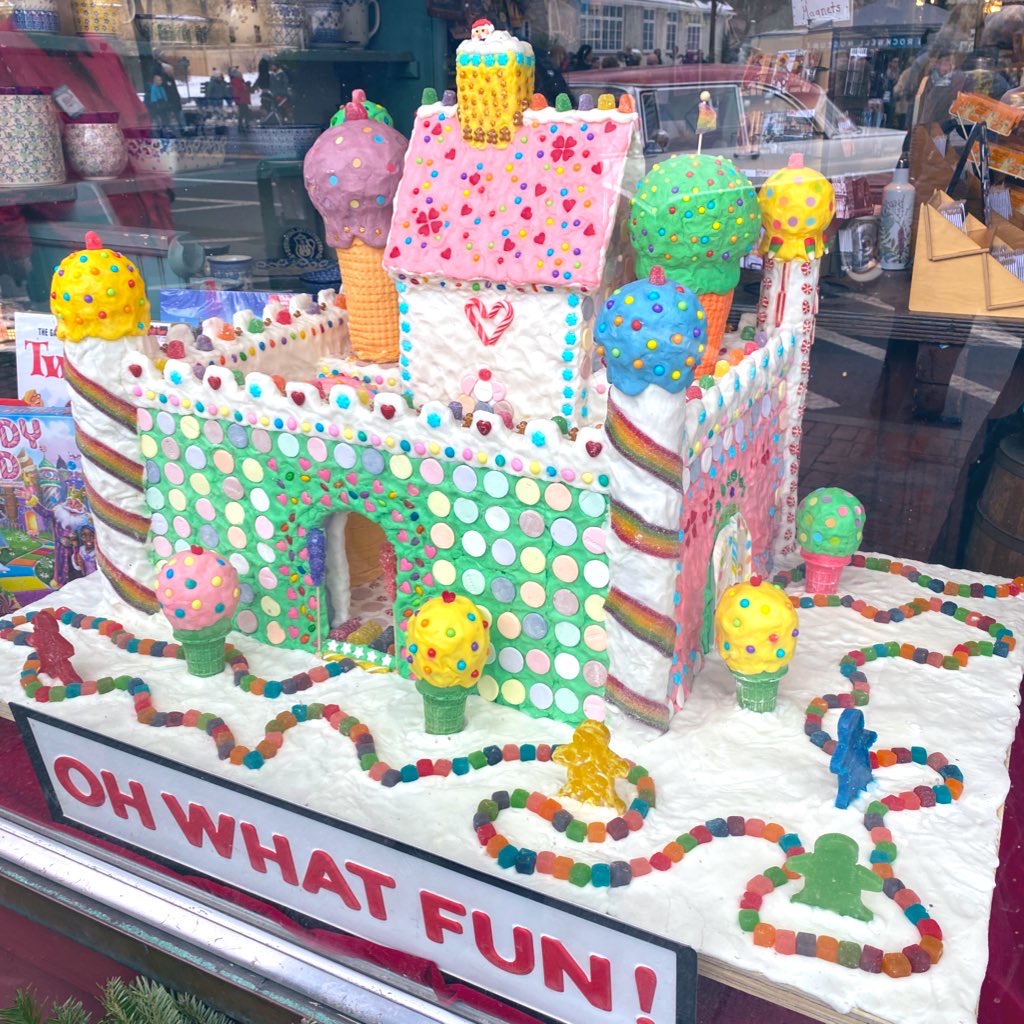
Store windows display entries for the gingerbread house contest (Williams & Sons Country Store)
Historic Red Lion Inn
Visitors first arrived at the historic Red Lion Inn by stagecoach in 1773. Since then, additions to the original building starting in the 1800s and the accumulation of antique furniture and china have given the inn its unique character and charm.
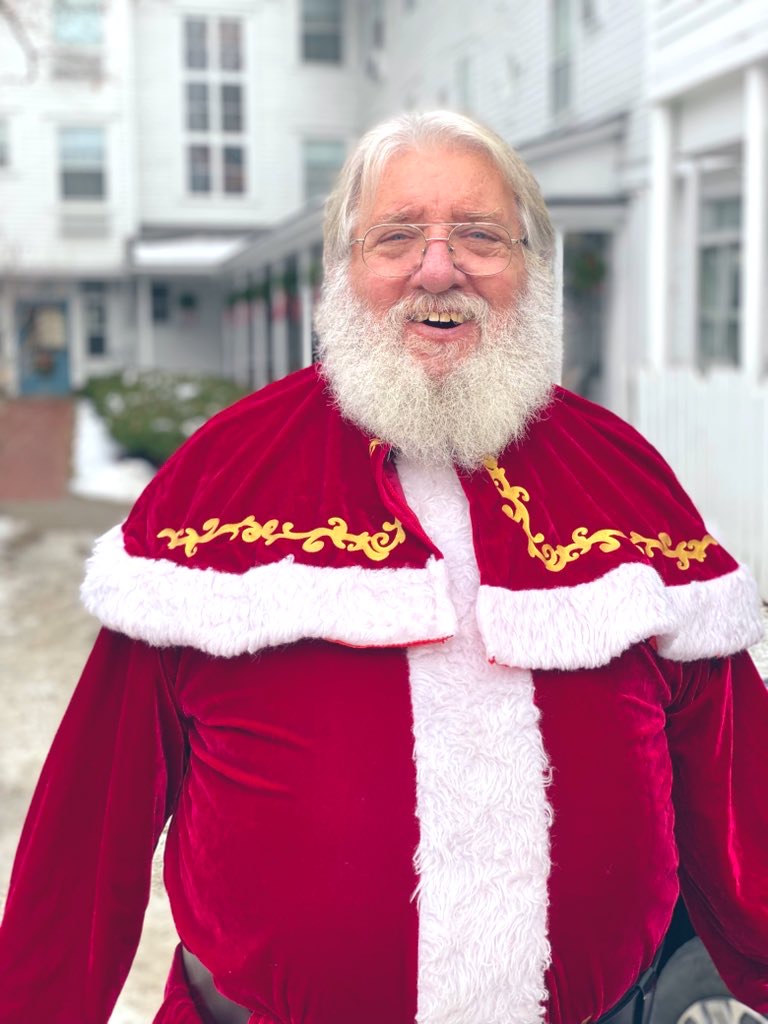
A truly jolly and charming Santa at The Red Lion Inn (visiting for a different event)
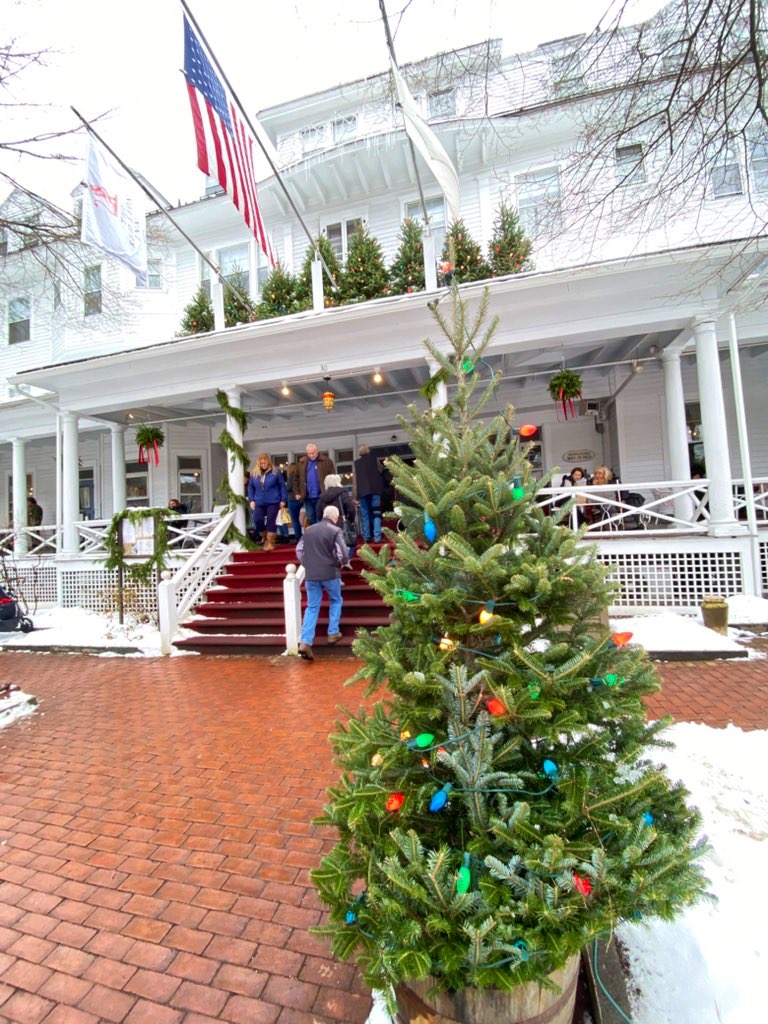
Red Lion Inn
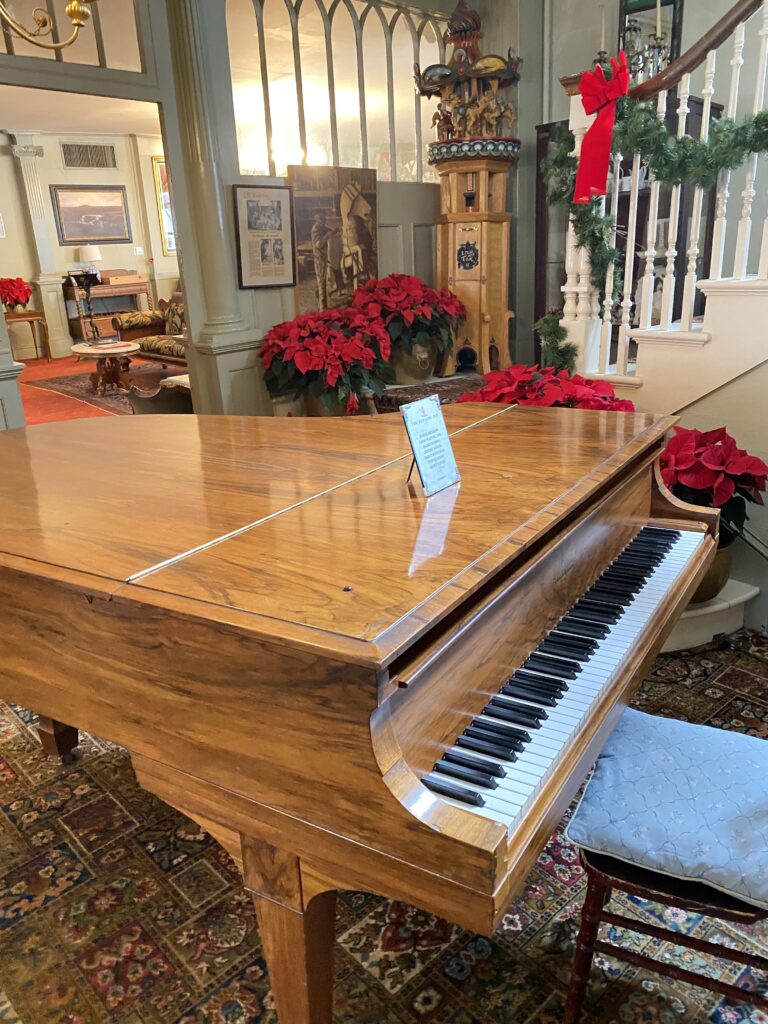
Party starter
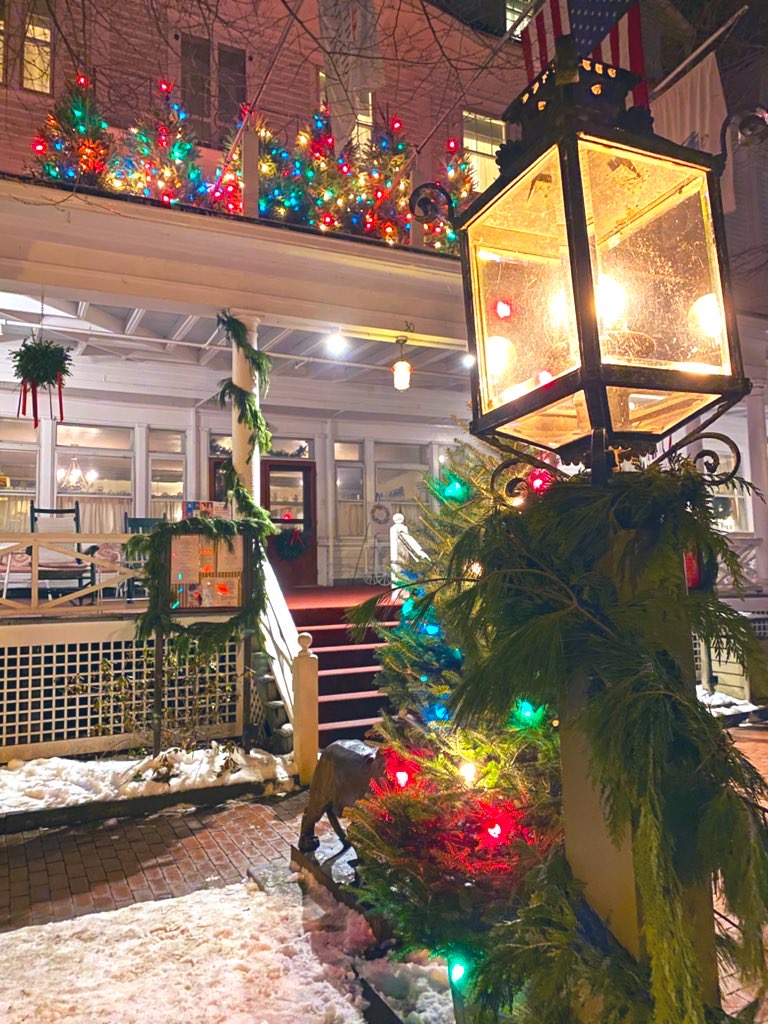
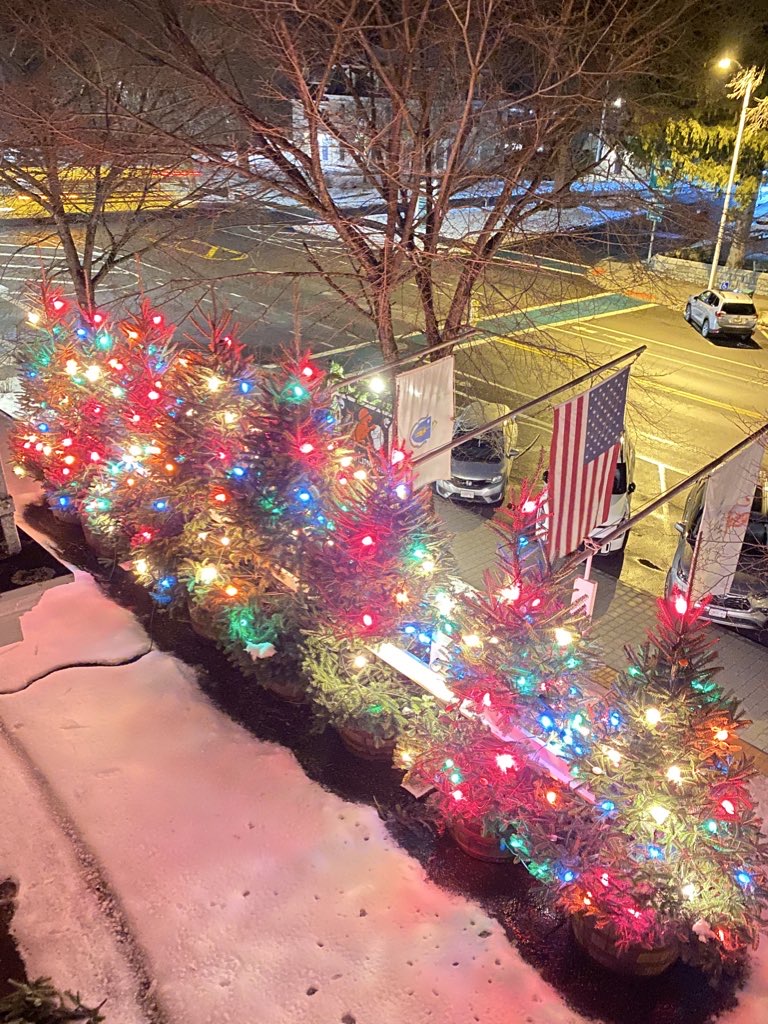
Santa’s rooftop view and a few reindeer hoofprints 🦌
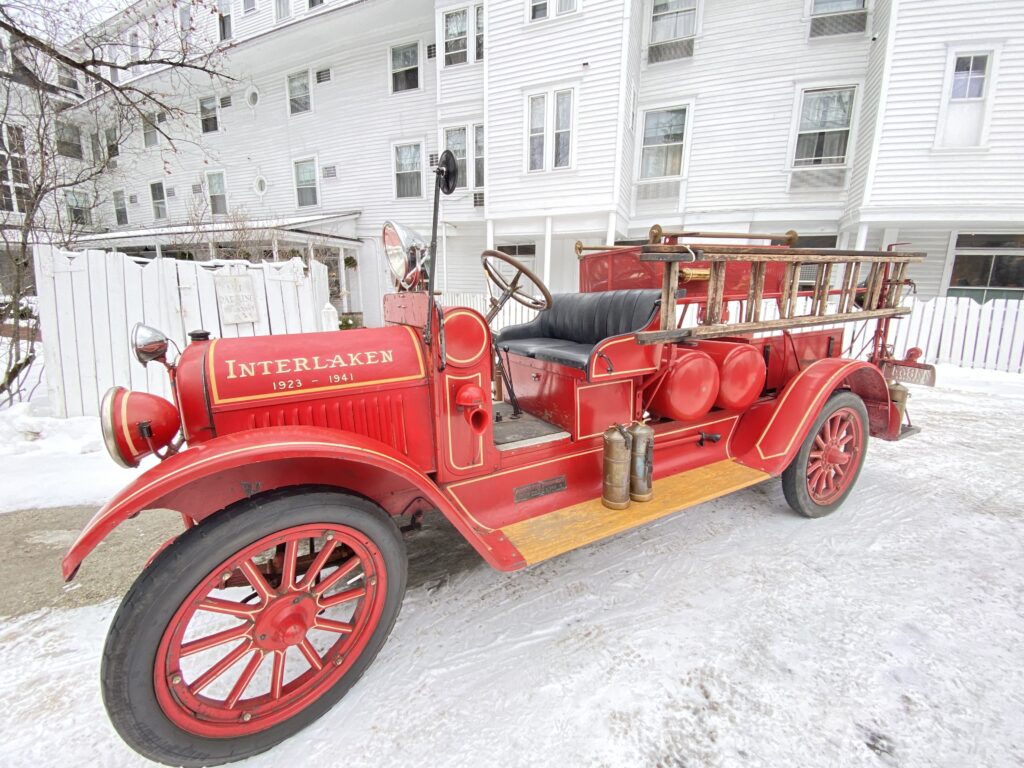
Santa’s daytime ride
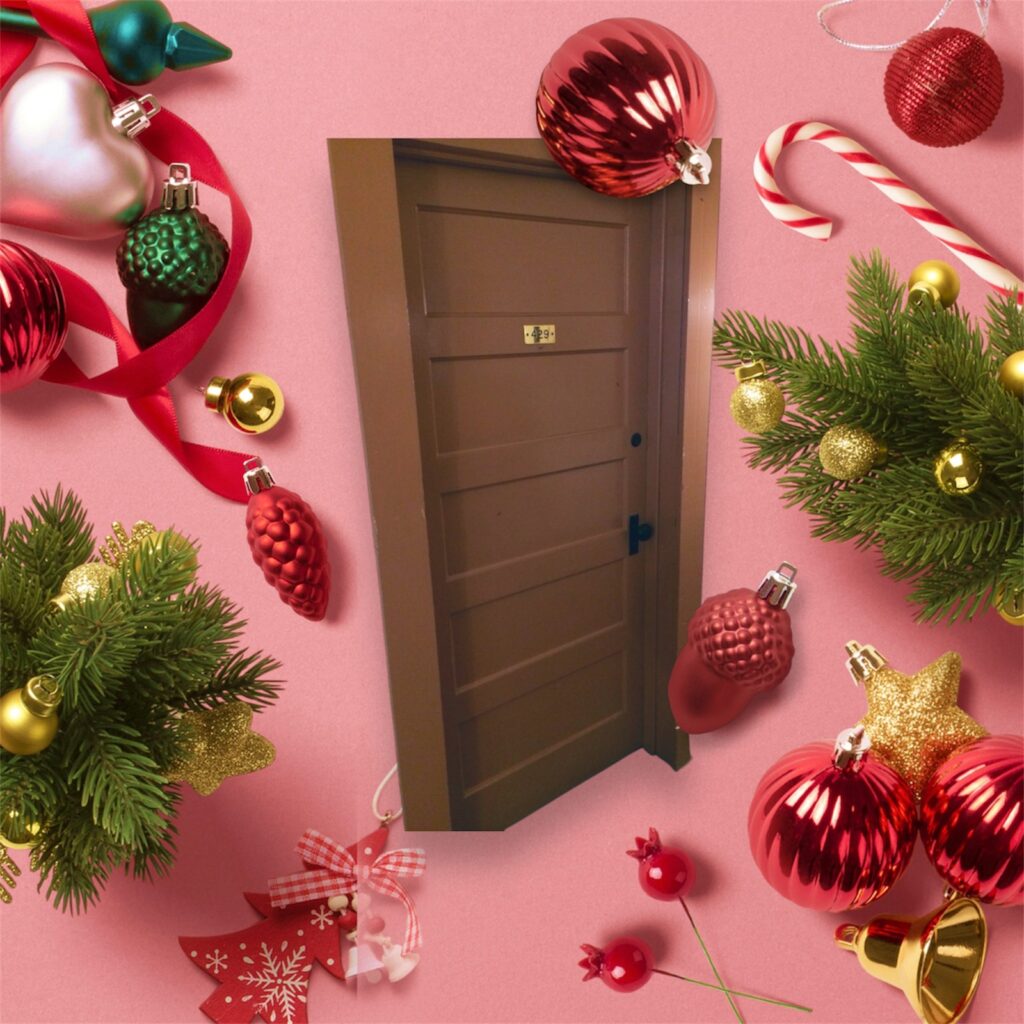
A door to nowhere (2016), part of the historic inn’s ramshackle charm, long suspected of being Santa’s portal to the North Pole (effectively confirmed in “Red One”). Luggage dropped off here is never lost, just regifted.
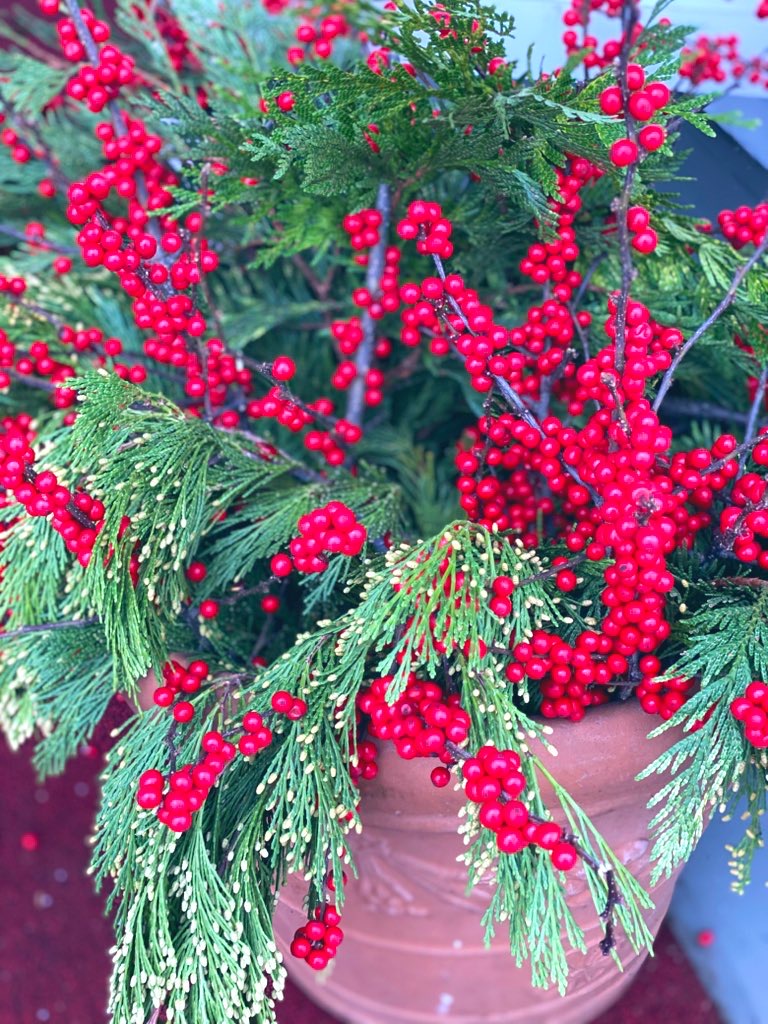
Winterberry welcome
Norman Rockwell Museum
Why are Norman Rockwell and his work so beloved? His warmth and humor got his fellow Americans through the Great Depression and several wars, and they cheer us to this day. His illustrations depicted touchstone moments of life, which we all have in common. Mr. Rockwell worked mostly on deadlines to create covers for The Saturday Evening Post, whose editors gave him creative freedom. Over 47 years, he completed 323 covers for the bimonthly periodical, and his overall body of work includes an impressive 4,000-plus paintings. Admirably, as a consummate professional, he carried on with this cheer through some difficult personal times. Modestly, Norman Rockwell considered himself a commercial illustrator, not an artist. Each of his paintings tells a story, and Norman was excellent at casting. Favoring naturalism, he employed neighbors and friends as models instead of professionals. In interviews, they fondly recounted his style of direction, which set them at ease and enabled them to become the characters. Inherent in this collaboration was an element of trust.
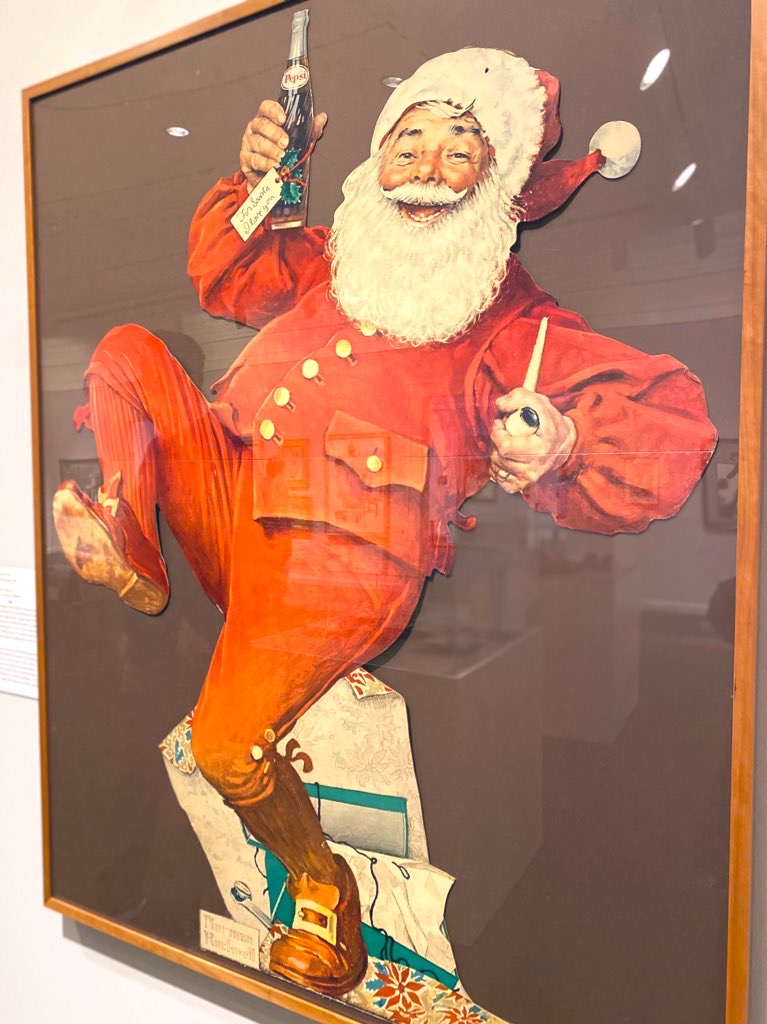
“Pepsi Cola Santa,”1965, a second attempt as Santa initially appeared too tipsy
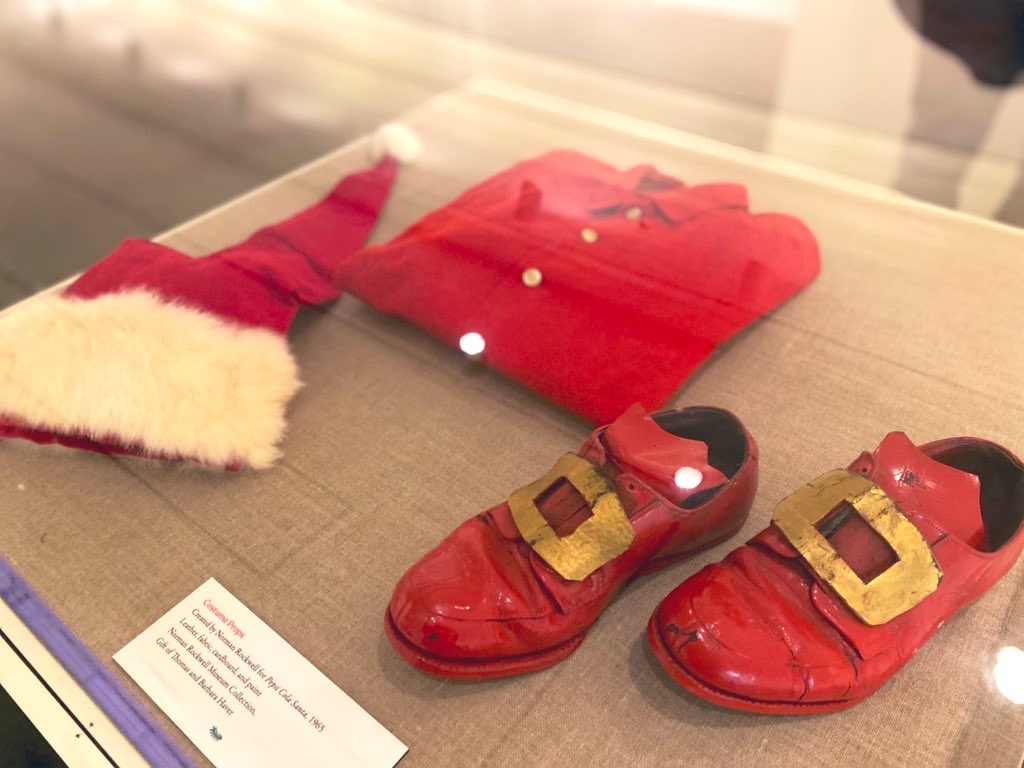
Original costume for “Pepsi Cola Santa”
In producing paintings often within two months, photography expedited the process and spared subjects from posing for lengthy periods in positions often too awkward to maintain. Some art critics chastised him for this, but with his training and talent, as noted, he did have the expertise to paint traditionally. As he said, he had an eye like a camera.
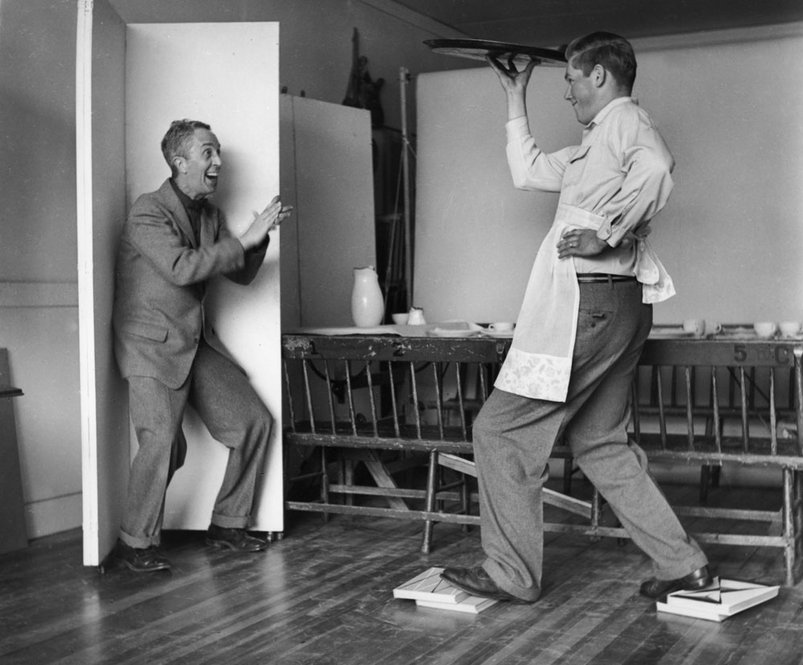
Norman Rockwell giving direction to one of his models (museum exhibition of 2009 via npr.org)
Originally a New Yorker, Norman Rockwell arrived in Stockbridge via Vermont. Regarding the town where he lived for the last 25 years of his life, Norman remarked that he loved living in a place where he knew everyone. He captured that happiness in “Stockbridge Main Street at Christmas”. The painting, which is on view at the Norman Rockwell Museum, has the spontaneous look of a snapshot. That “spontaneity” took the artist 11 years to capture between 1956 and December 1967. The work conveys someone taking in the view from across the street, perfectly depicted with a panorama. The golden light of welcoming shops owned by neighbors illuminates the winter blue sky and makes the painting feel suffused with love. (Even a darkened Red Lion Inn, formerly closed in the winter and now lively with Victorian carolers and visitors for the event, does not detract.) Though the holiday preparations look ordinary – people Christmas shopping, neighbors chatting, children throwing snowballs, the ordinary, everyday things are what we all appreciate after an absence, and Christmastime charms most of all. Painted during the time of the Vietnam War, the painting also reassures with its “changelessness, tranquility, and safety”. (massmoments.org)
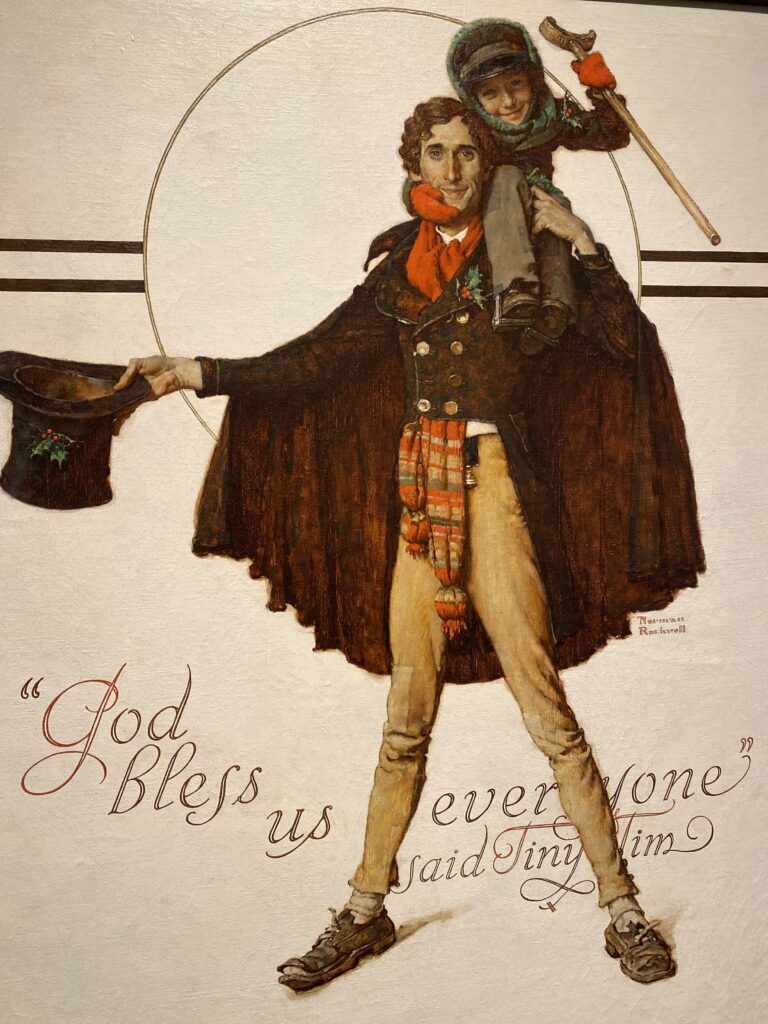
“Tiny Tim and Bob Cratchit (God Bless Us Everyone),” 1934, cover The Saturday Evening Post
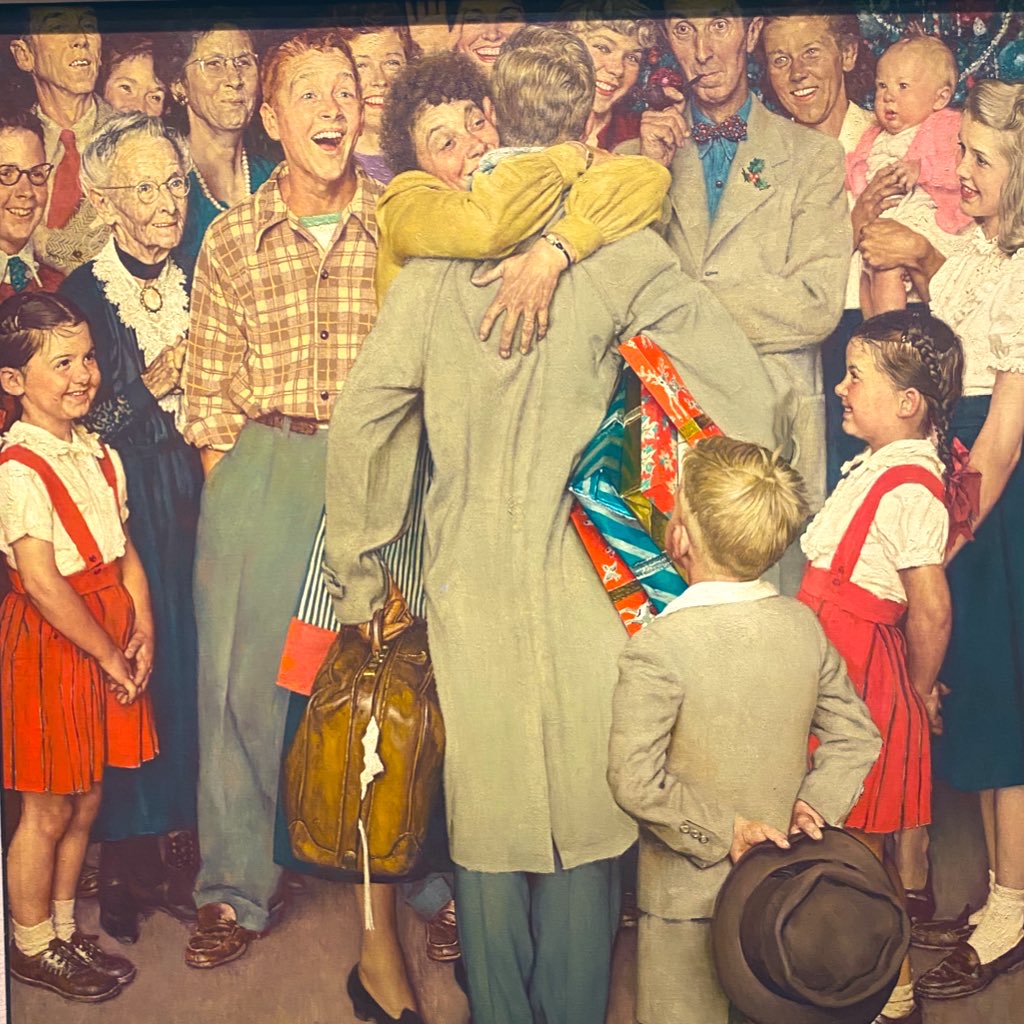
(“Christmas Homecoming,” 1948, cover for The Saturday Evening Post, December 25th. As noted in a Post blog, the mother Norman’s wife Mary, the returning son, their son, Jerry. To Mary’s left is their son Tommy in the plaid shirt, and their youngest son Peter is far left with glasses. Norman is pictured as the happy father who is smoking his pipe. The others are friends and neighbors and frequent models which adds to the warmth of the painting.)
The painter known for celebrating small-town Americana kept his work fresh and original in a professional life of fifty-six years. As he once remarked, “Commonplaces never become tiresome. It is we who become tired when we cease to be curious and appreciative. We find that it is not a new scene which is needed, but a new viewpoint.” With his classical art training, Mr. Rockwell could paint using a traditional process. At 15, he was already making Christmas cards professionally. The aspiring artist left high school after his sophomore year; he studied at the Chase Art School (Parsons School of Design) and later at the National Academy of Design and the Art Students League of New York. (The museum shares that Gerard ter Borch, Peter de Hooch, and Johannes Vermeer, who also used light to great effect, were three of Norman’s favorite artists.) As noted in “Frankly Norman,” a more -in-depth profile, by 19, Norman Rockwell was an associate art director at Boy’s Life, the magazine for the Boys Scouts.
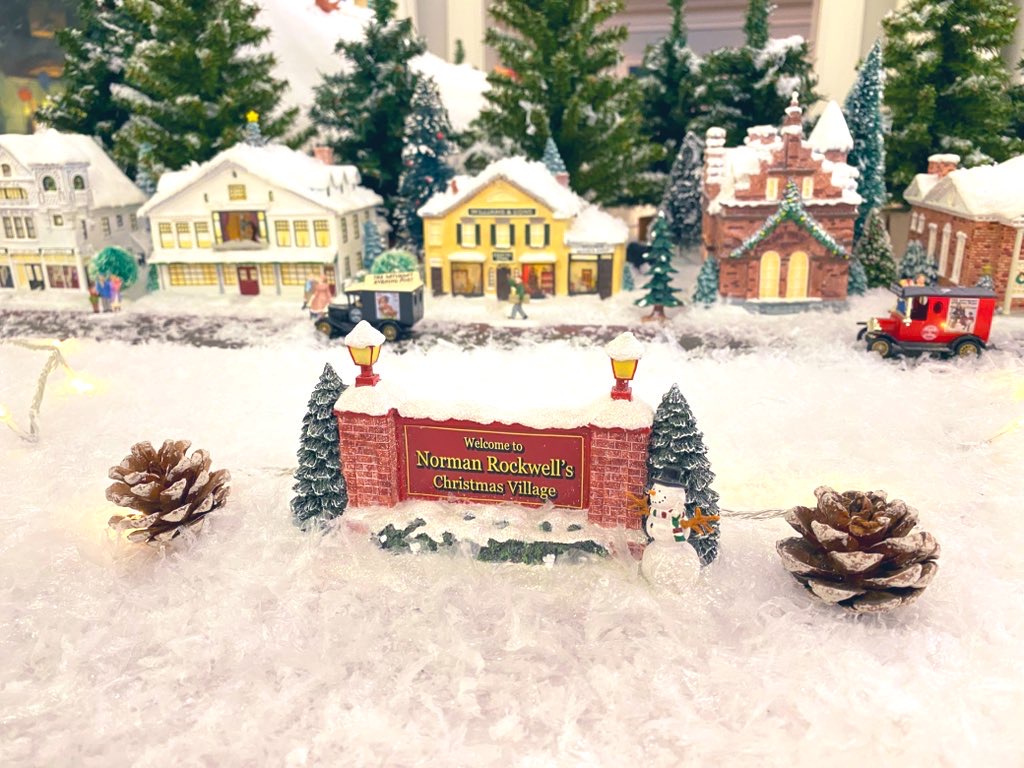
Charming model of Stockbridge, generously donated by Carol Soeldner
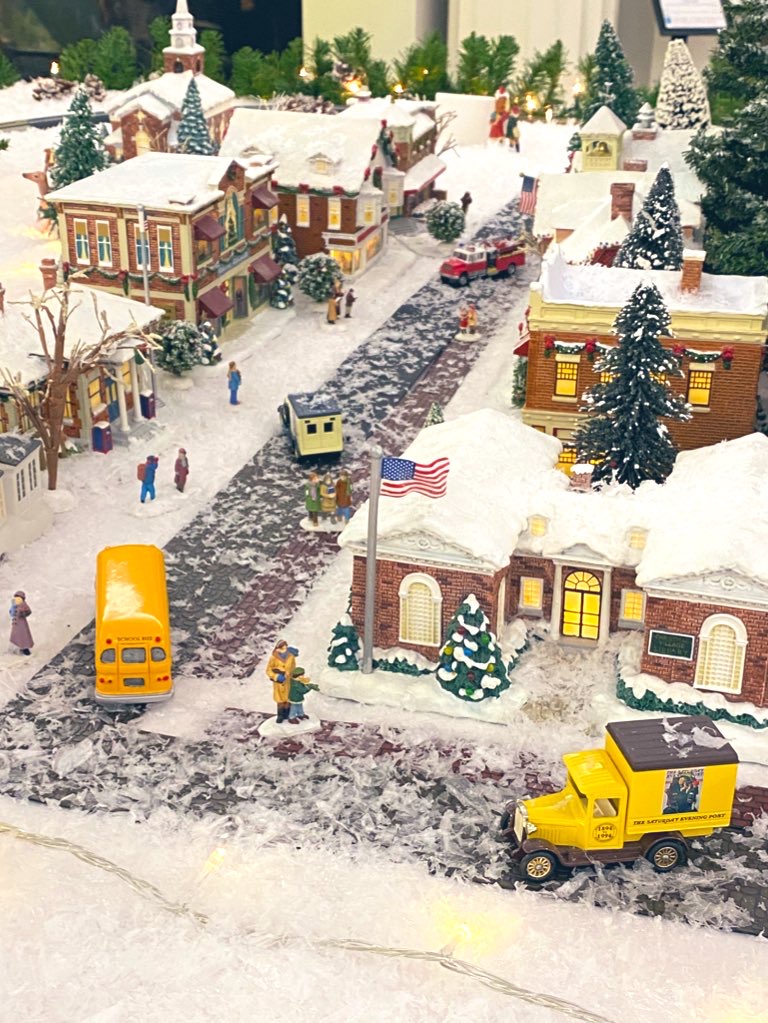
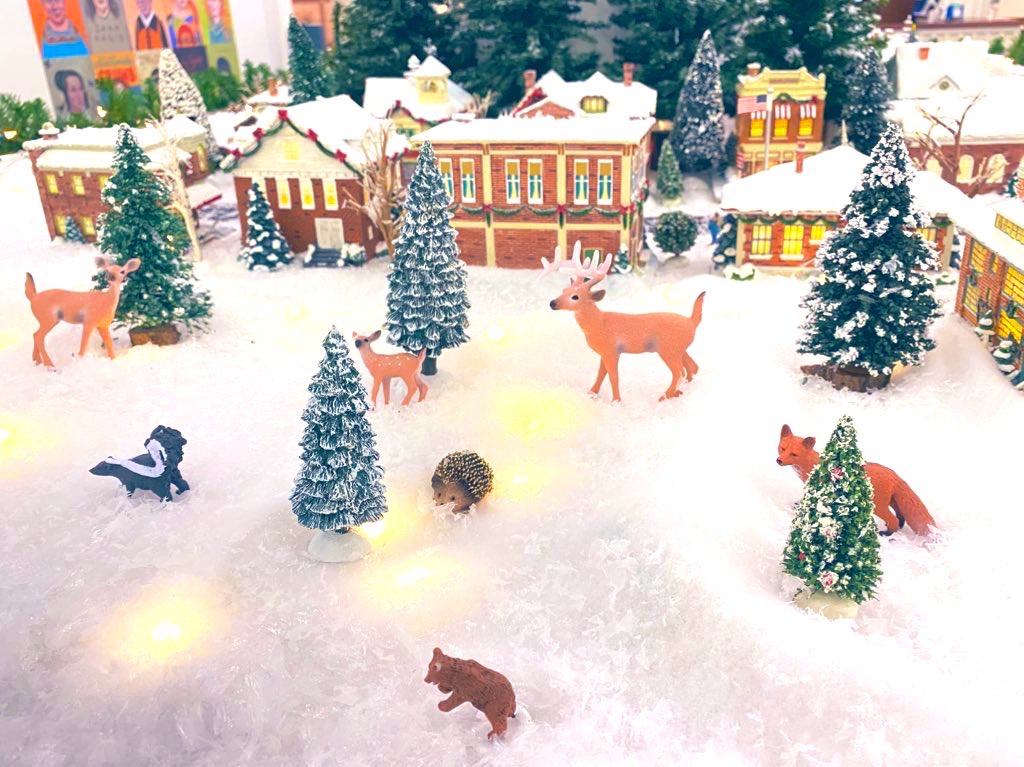
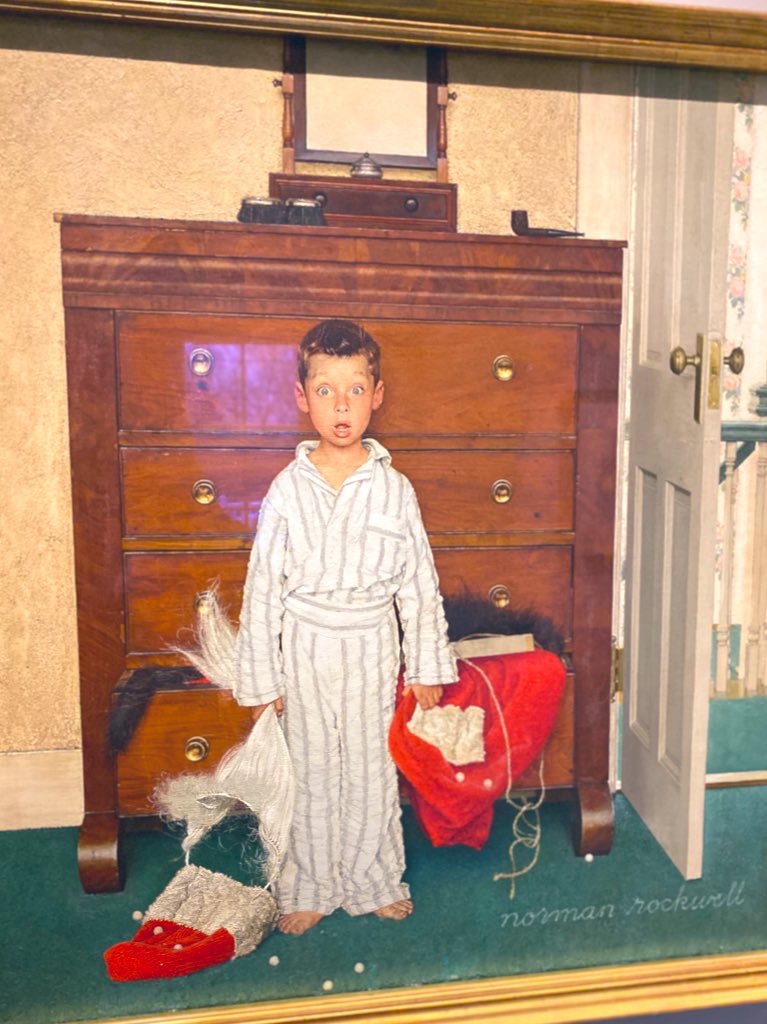
“The Discovery,” 1956
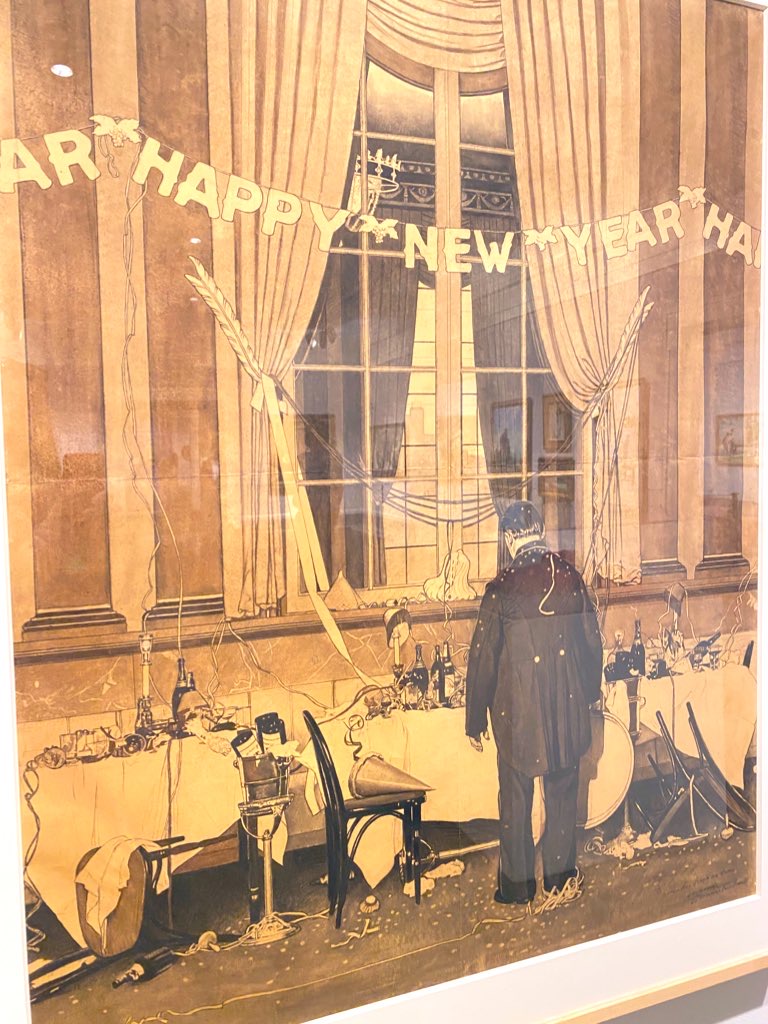
A tired waiter after the celebration in a charcoal study for “Happy New Year,” Saturday Evening Post cover, December 29, 1945
His muscular Rosie the Riveter, a Saturday Evening Post cover, May 29, 1943, which reflects women’s movement into the workforce during World War II, takes inspiration from the Prophet Isaiah of Michelangelo’s Sistine Chapel, and shows his appreciation for European art. Additionally, the Post cover significantly popularized the role of Rosie. Mr. Rockwell later apologized to his model, the pretty and petite 19-year-old Mary Doyle Keefe, a part-time telephone operator from Vermont, for the transformation, which he explained was to convey a strong, inspirational larger-than-life figure. Ms. Keefe, delighted to be part of history, often participated in museum events and later appeared at the sale of the painting at Sotheby’s in 2002, when it sold for $4.9 million.
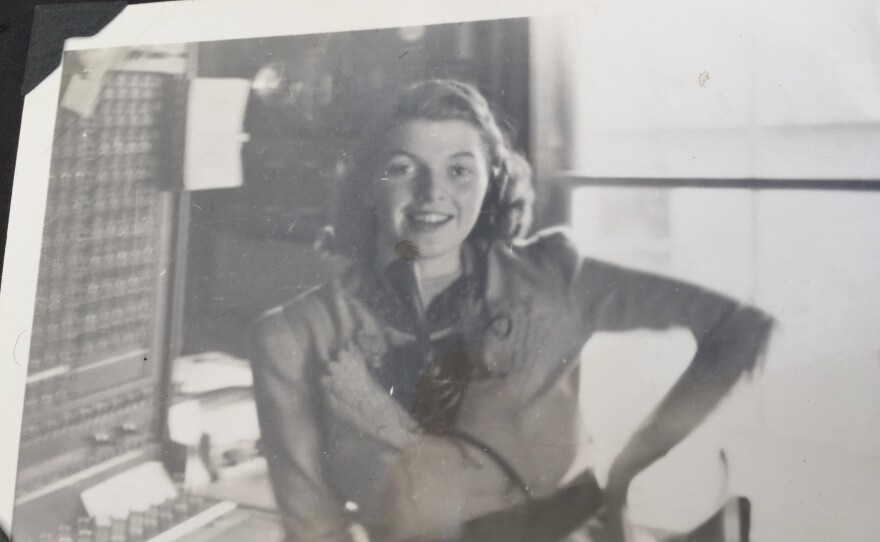
Mary Doyle Keefe, circa 1943, via ctpublic.org
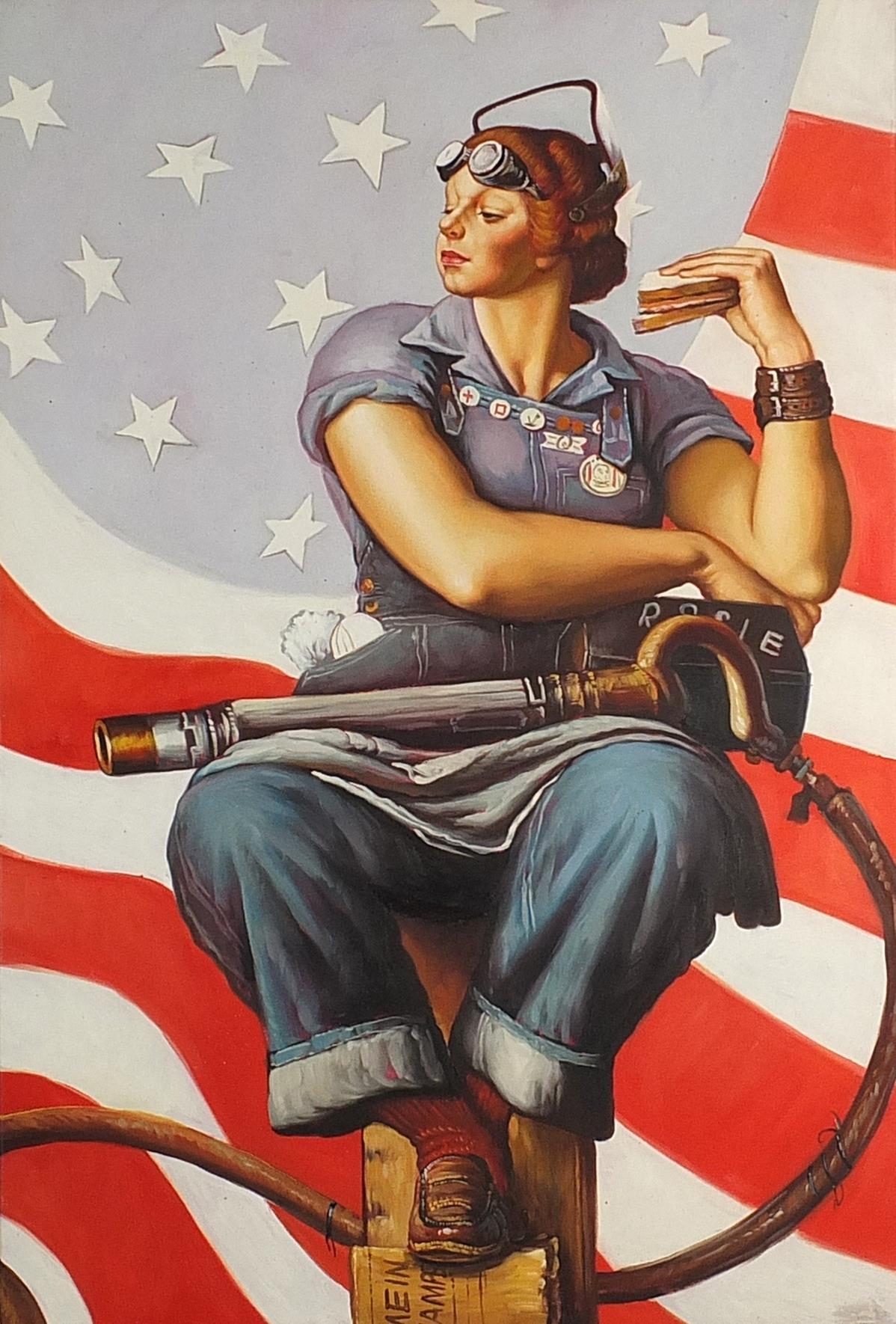
Via Wiki
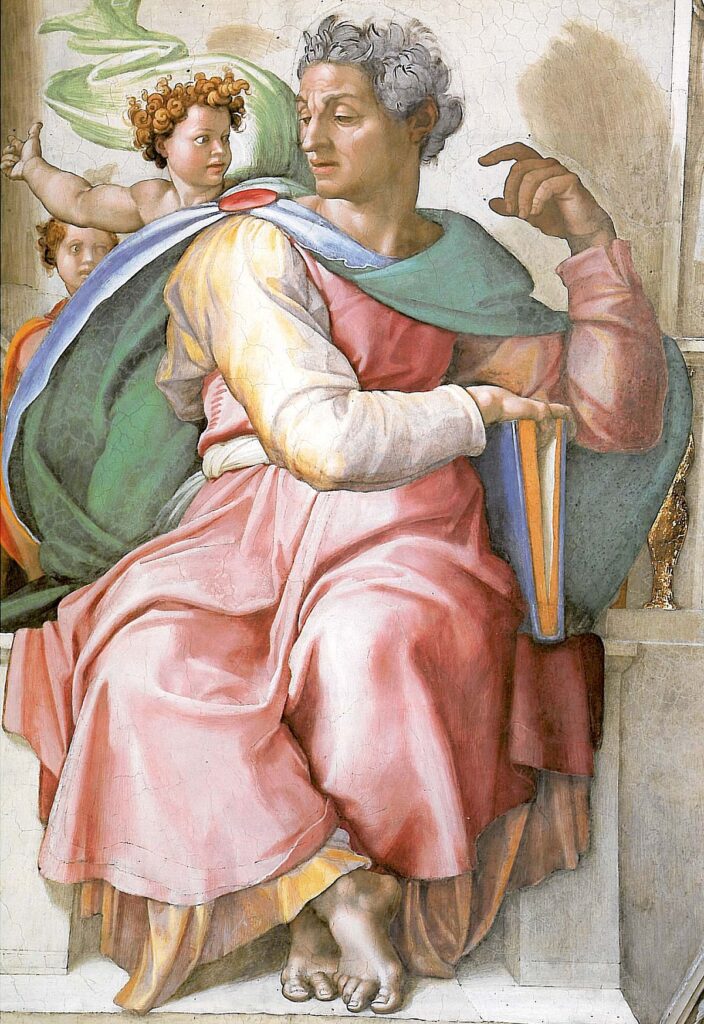
Via Wiki
Though the occasional critic derided Mr. Rockwell for idealizing American life, particularly as the appeal of abstract art grew, he was nonplussed, “Without thinking too much about it in specific terms, I was showing the America I knew and observed to others who might not have noticed.” (Christies.com) If we scroll through our iPhone photos or look back at snapshots, there are captures of some perfect moments that may have passed our notice. Rather than idealizing life, Mr. Rockwell keenly observed the good. “Stockbridge Main Street at Christmas” exemplifies how Norman Rockwell was inspired by life around him.
Fans like Steven Speilberg, originally from Haddonfield, NJ, and George Lucas, who surely wishes he were from New Jersey, admire Mr. Rockwell’s narrative paintings as “cinematic”. Both have purchased numerous works of the artist over the years, and share these in an exhibition “Telling Stories” at the Smithsonian Museum.
Some may not know that Norma Rockwell taught in a correspondence school for commercial art, which predated email and Zoom. Founded in Westport, Connecticut, by illustrator Albert Dorne in 1945, the Famous Artists School (FAS) offered home study with lessons designed by the respective “famous artists” to help returning GIs find work in the field of commercial art. At its peak, the school had 50 instructors working onsite. Requests for Norman’s class outpaced others due to his fame and success. Lucky students enrolled in Mr. Rockwell’s class, though other experienced illustrators often critiqued submitted work as was standard in those schools. (FAS attracted some famous students of the day including actors Tony Curtis and Charlton Heston, as well as singers Dinah Shore and Pat Boone.) Artist Jim Stafford was on a correspondence course with acquaintances of Norman Rockwell’s, and later, as a young soldier, Jim wrote to Norman and asked if he might visit him at his Stockbridge studio. After receiving an invitation, Jim and a friend went the studio, where Norman cast Jim as the window washer for a 1960 Post cover. In a paternal gesture, Mr. Rockwell tried to set Jim up with the model for the stenographer, but the real-life Jim was not as bold as his character. He did, however, appreciate that Norman critiqued the art that he brought.
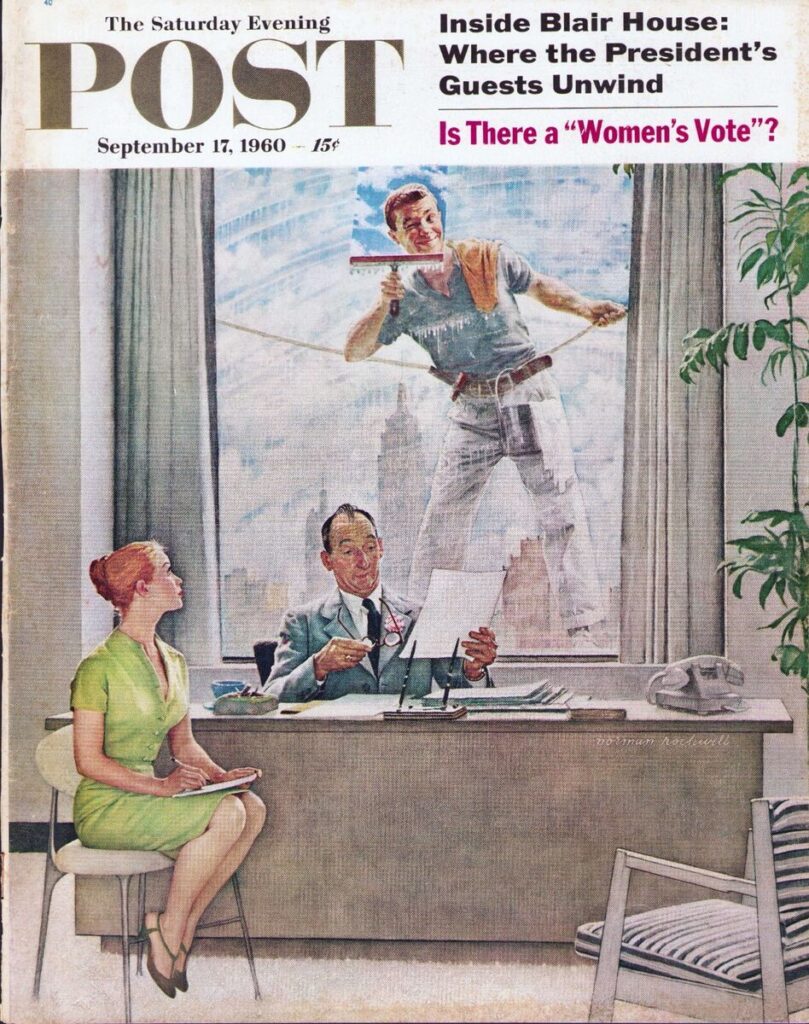
Via saturdayeveningpost.com with an interesting article title to accompany the illustration
A fun fact is that Norman owned several dogs, which kept him company at his studio. A Collie dog named “Raleigh Rockwell,” who appeared on numerous Saturday Evening Post covers, was special. An account from “Dogs Society” shares that Raleigh so adored Norman that when his owner-pal was away in Europe once on business, Raleigh refused to eat and started to fade. His health deteriorating, Raleigh’s whiskers drooped and turned white. When Norman returned, he hand-fed Raleigh until he was well and promised never to leave him again if his whiskers returned to their natural color. Raleigh’s whiskers changed within a few weeks, and Norman kept his promise.
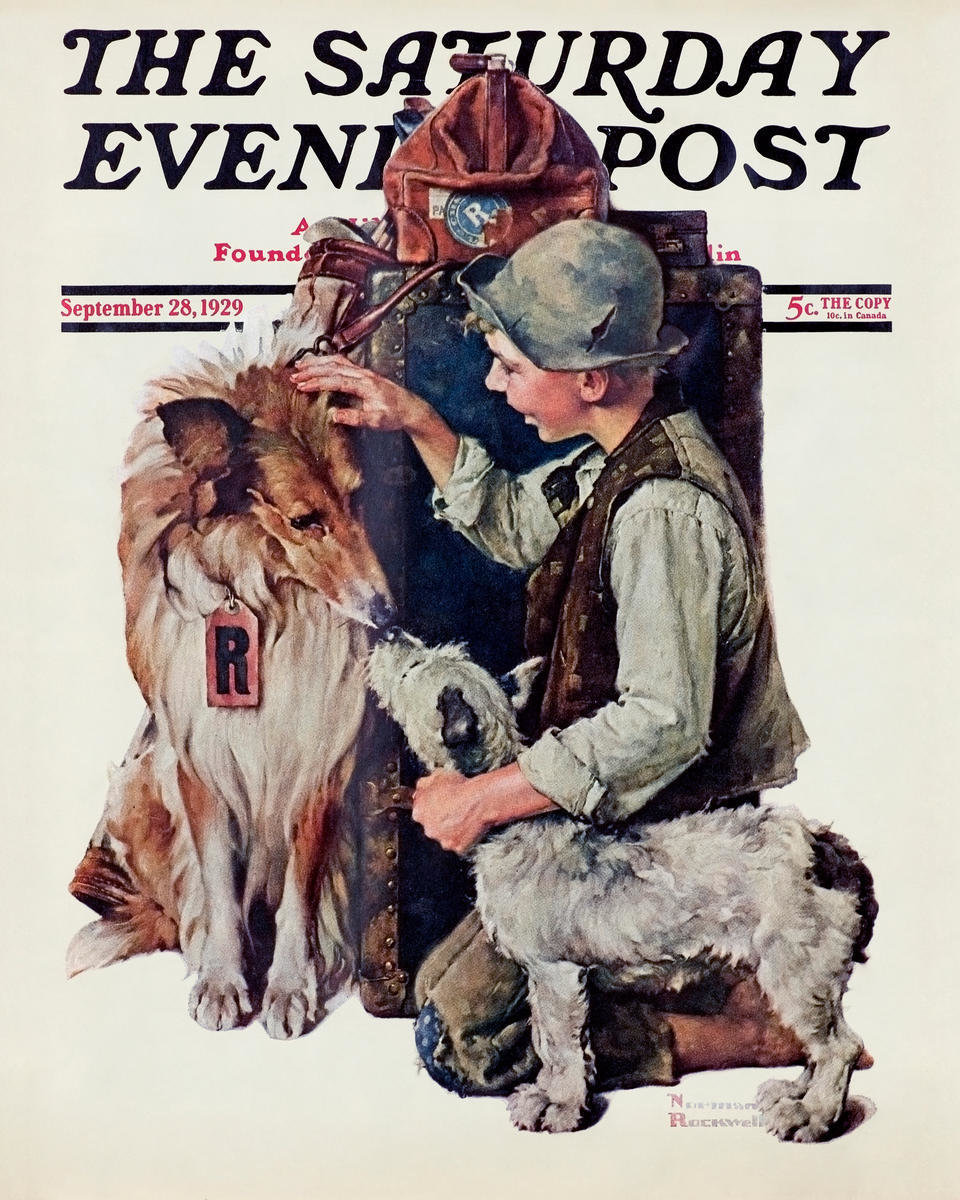
“Making Friends,”1929, with Raleigh via saturdayeveningpost.com
Enjoy Norman Rockwell’s heartwarming holiday themed paintings in “Home for the Holidays” through February 25th at the Norman Rockwell Museum, Stockbridge, just a short drive from Main Street. Other exhibitions include “Anita Kunz: Original Sisters Portraits of Tenacity and Courage,” “Illustrators of Light: Rockwell, Wyeth, and Parrish from the Edison Mazda Collection,” “Norman Rockwell: Illustrating Humor,” and more.
Fans may also be interested in Mr. Rockwell’s autobiography My Adventures as an Illustrator: The Definitive Edition.
Naumkeag “Winterlights”
The striking Stockbridge Naumkeag, named after the Naumkeag tribe, an Eastern Algonquin-speaking people, is a Gilded Age cottage. The mansion is on the National Register of Historic Places, and the entire estate is a National Historic Landmark District. The former is the work of the renowned architect Stanford White of McKim, White, & Mead, who built the country retreat for prominent lawyer Joseph Hodges Choate, who helped found the Metropolitan Museum of Art, and his wife Caroline Dutcher Sterling Choate, a proponent of women’s education who co-founded the Brearley School and Barnard College. In non-architectural terms, Naumkeag looks like a fairy tale cottage that morphed into a mansion while keeping its charm. With thoughts of spring, when Naumkeag reopens in May, the grounds include beautiful gardens, notably the Rose Garden, the Afternoon Garden, and the Chinese Garden, designed by Fletcher Steele, and summer brings Tanglewood to nearby Lenox.

Magical welcome at “Winterlights”
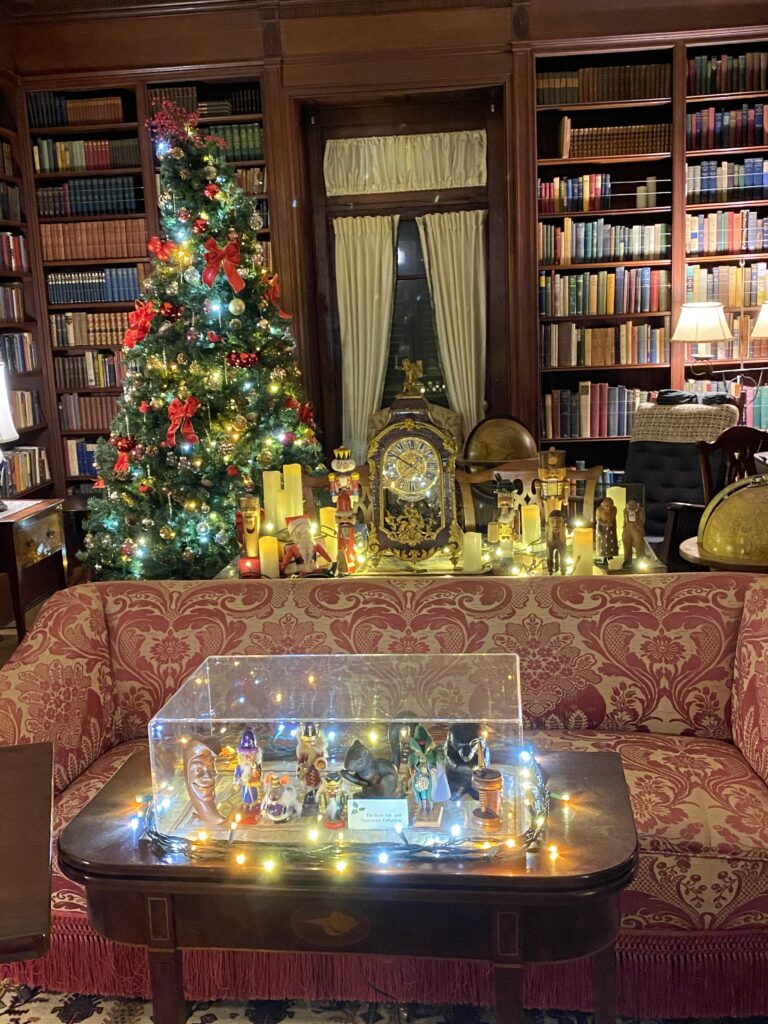
Stunning library with live music
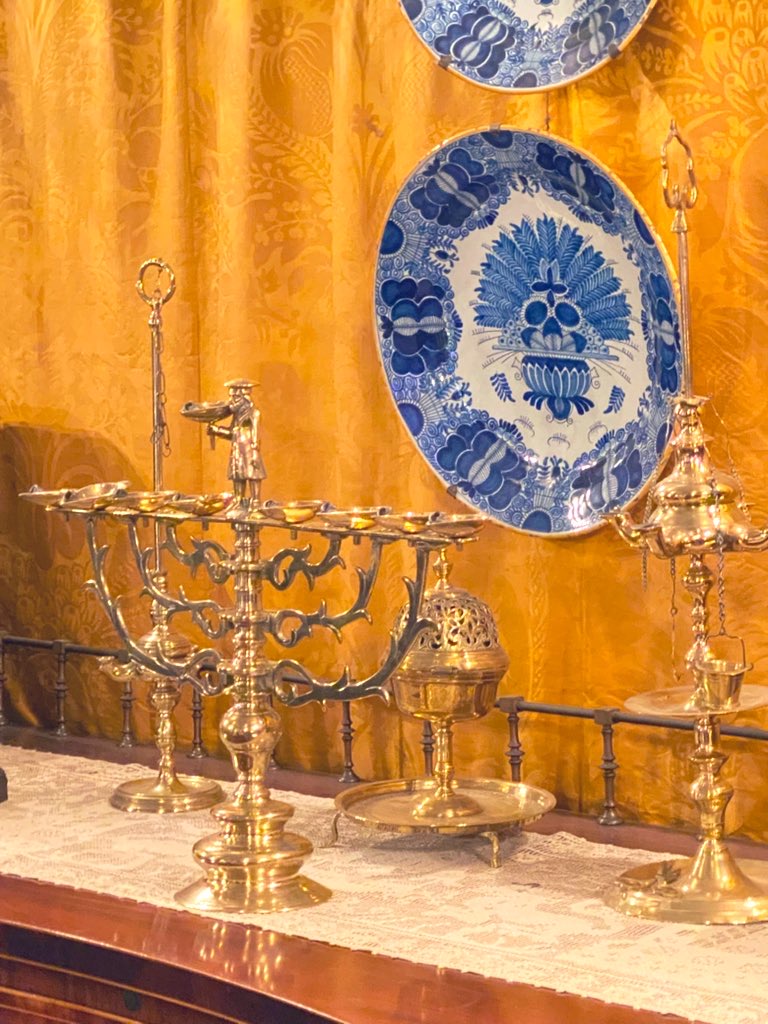
Beautiful menorah
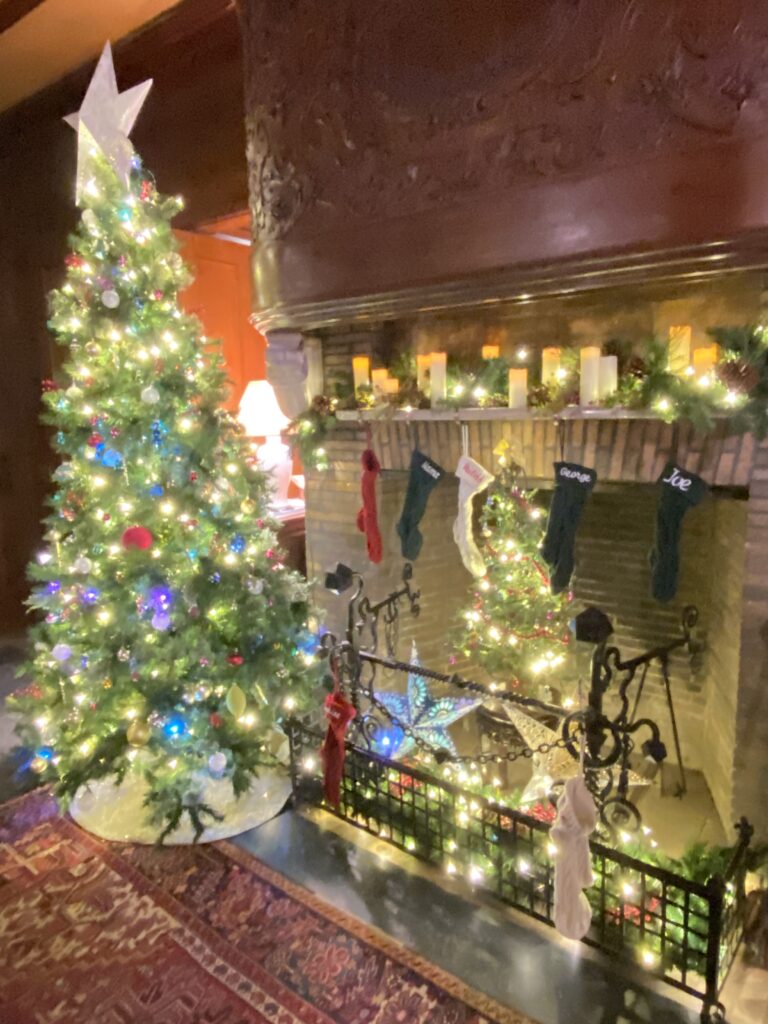
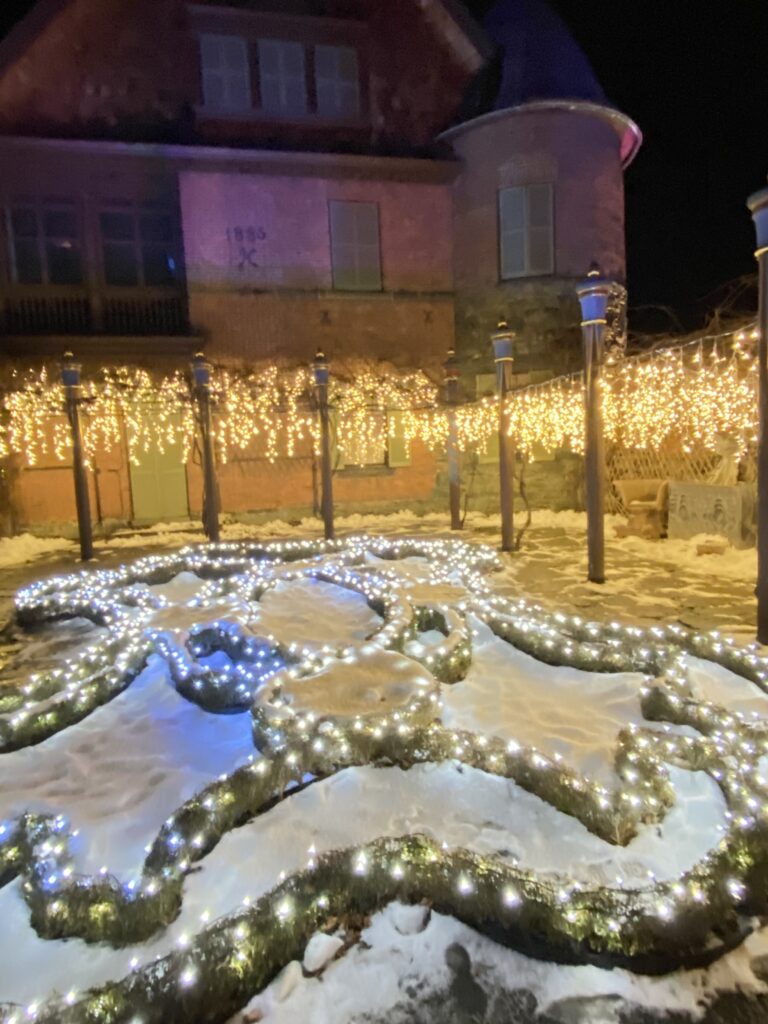
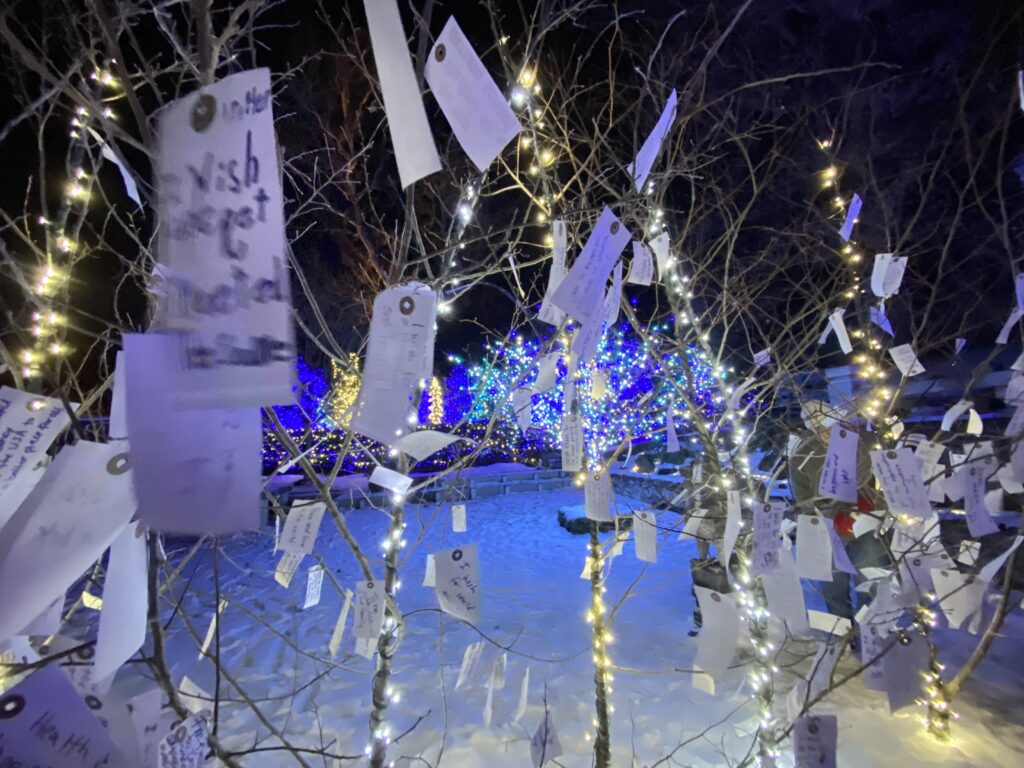
Wishing trees 🕊️✨

Norman Rockwell celebrated at the Doctor Sax House (hotel) in nearby Lenox
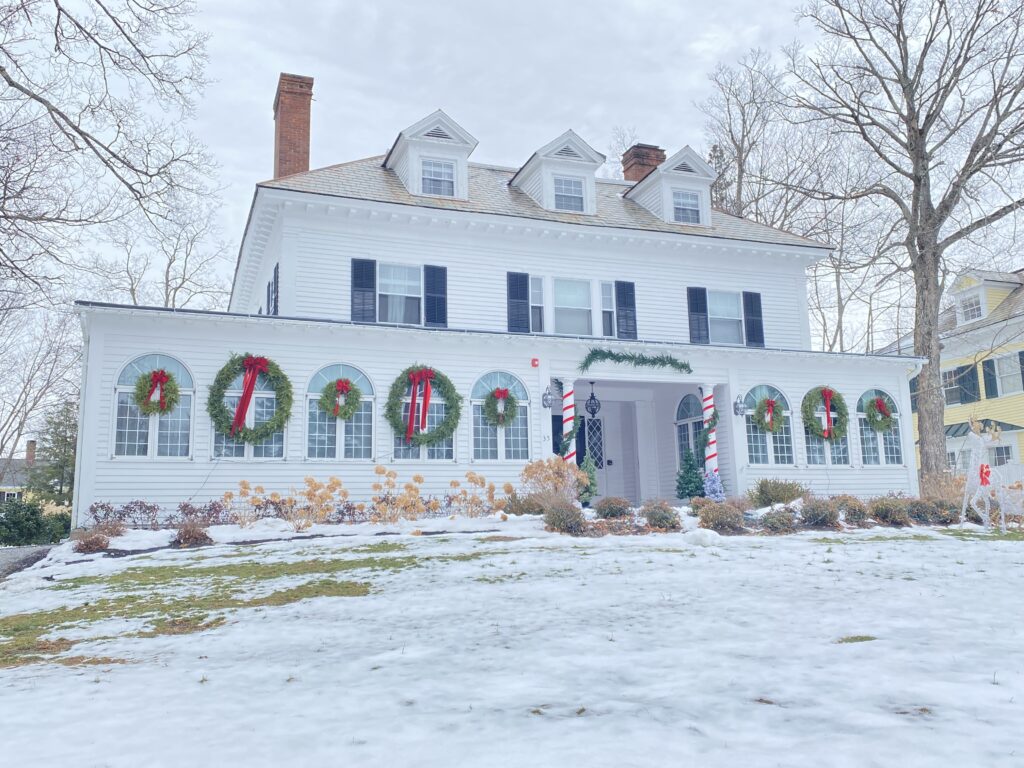
Doctor Sax House, Lenox, 1874, and dulu Cafe & Lounge
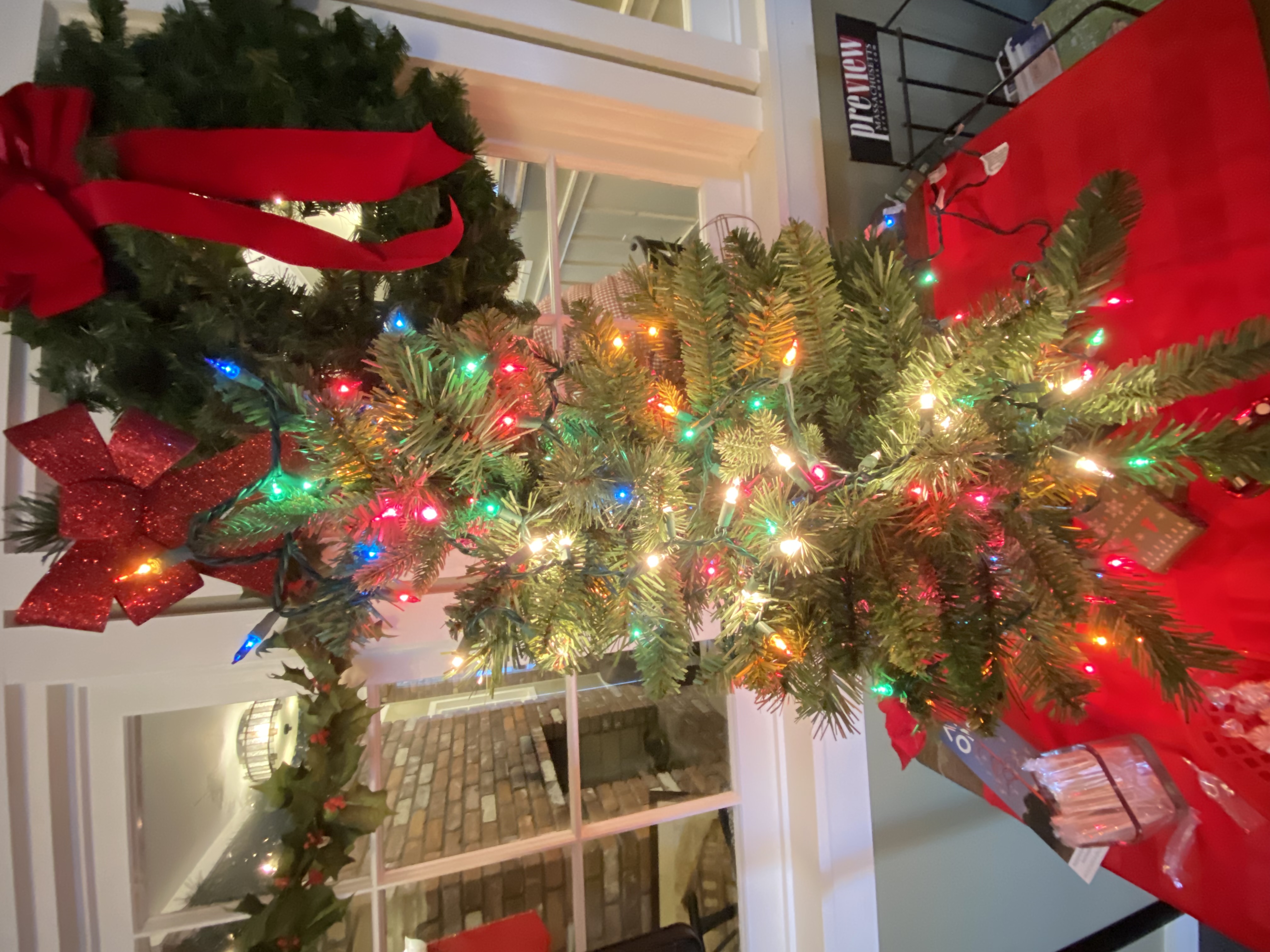
Holiday cheer at Michael’s Restaurant, Stockbridge
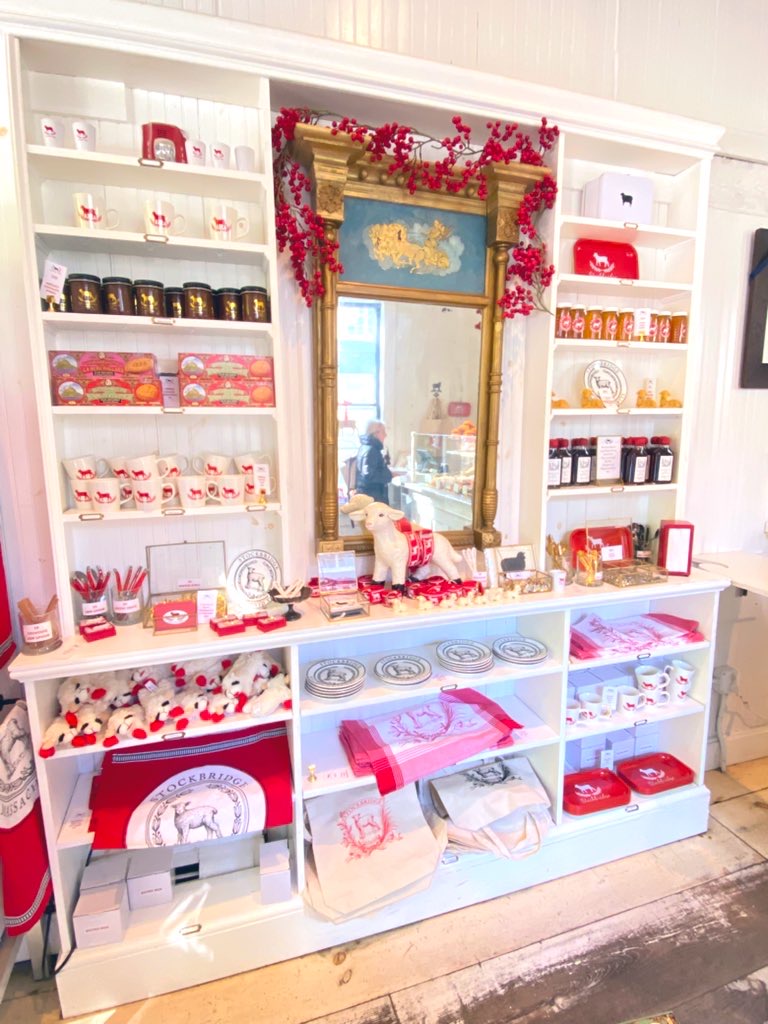
The Lost Lamb (from an October visit)
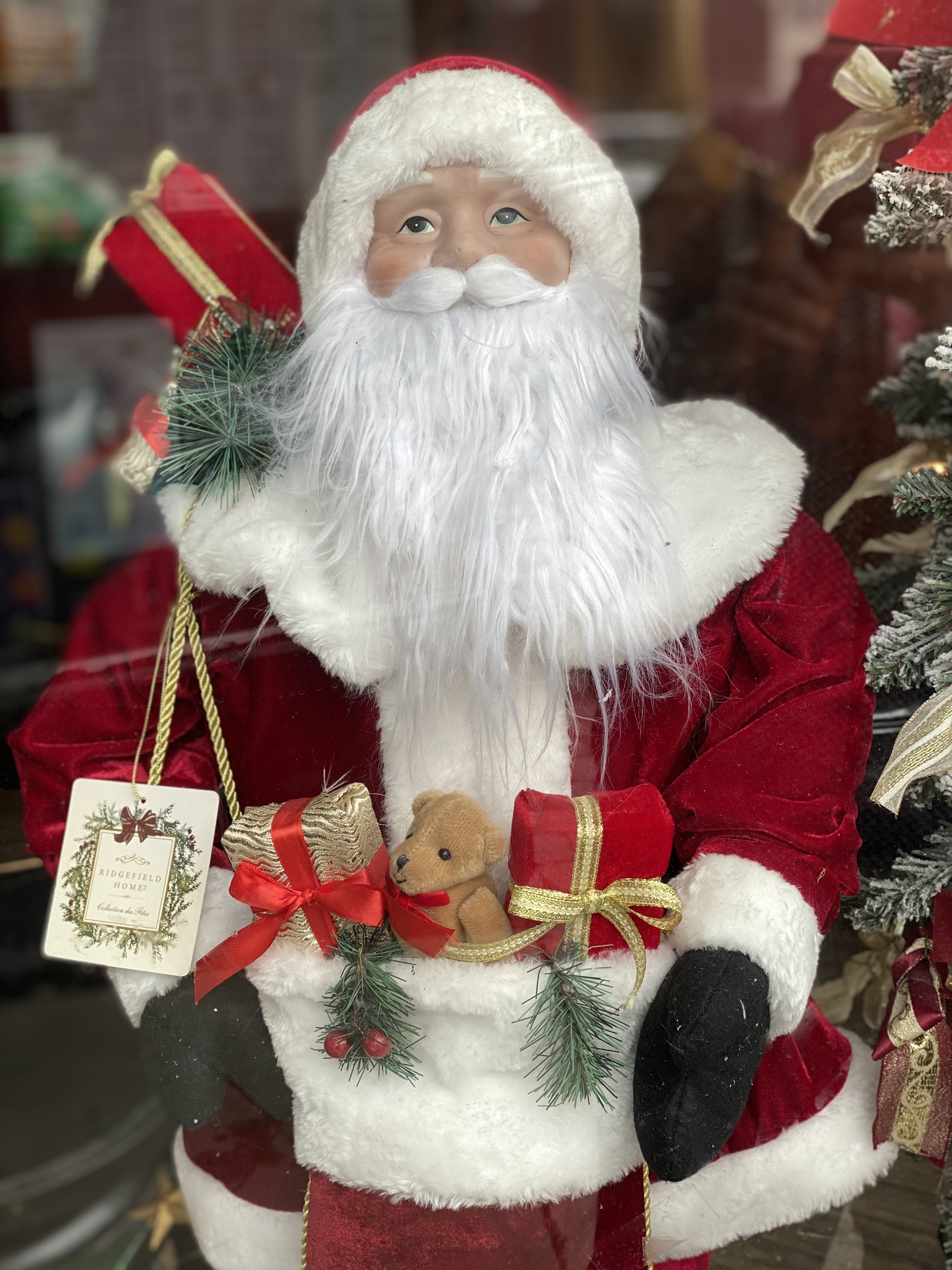
Santa welcomes customers at Tiffany’s Cafe & Market
Since all roads lead to New Jersey, a revisit to a Rockwell gem at the Nassau Inn, not far from the Arts Council of Princeton, also noted in ”Frankly Norman,” is a must:
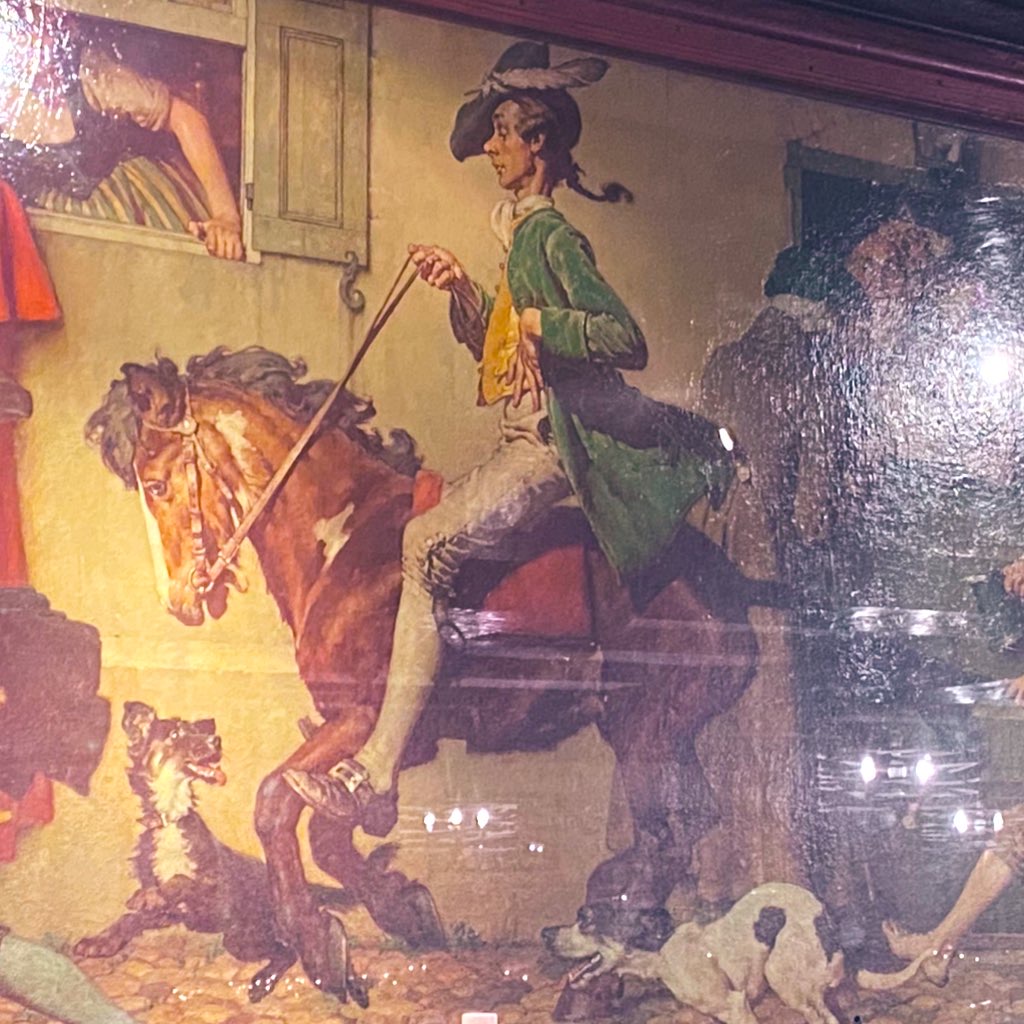
Partial view of the Rockwell mural “Yankee Doodle Dandy,” not quite the Three Kings, but still weaving it in, from the Yankee Doodle Tap Room, Nassau Inn, dating back to 1769; rebuilt in 1938. Mentioned in F. Scott Fitzgerald’s This Side of Paradise, a fun reminder from Wiki
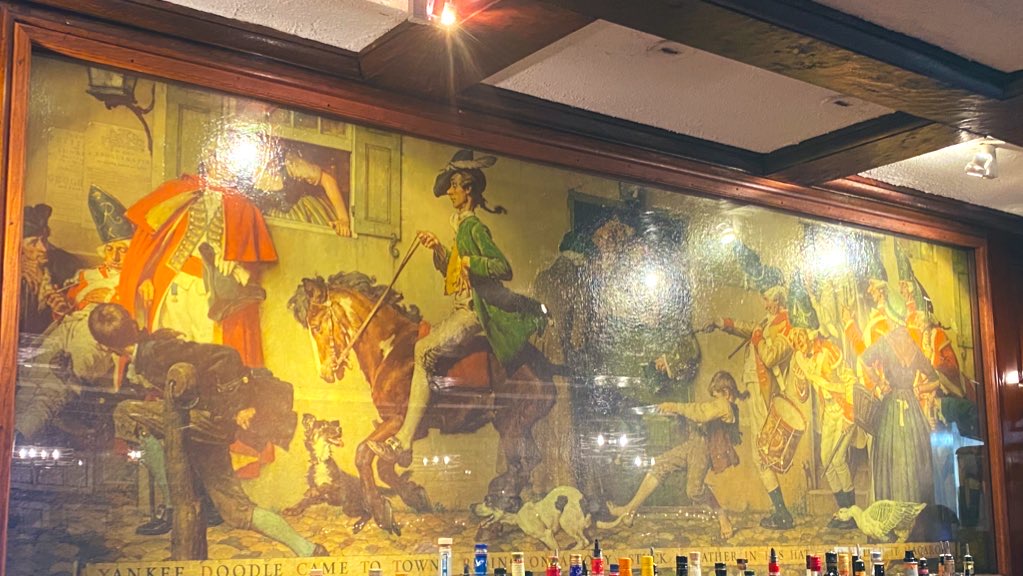
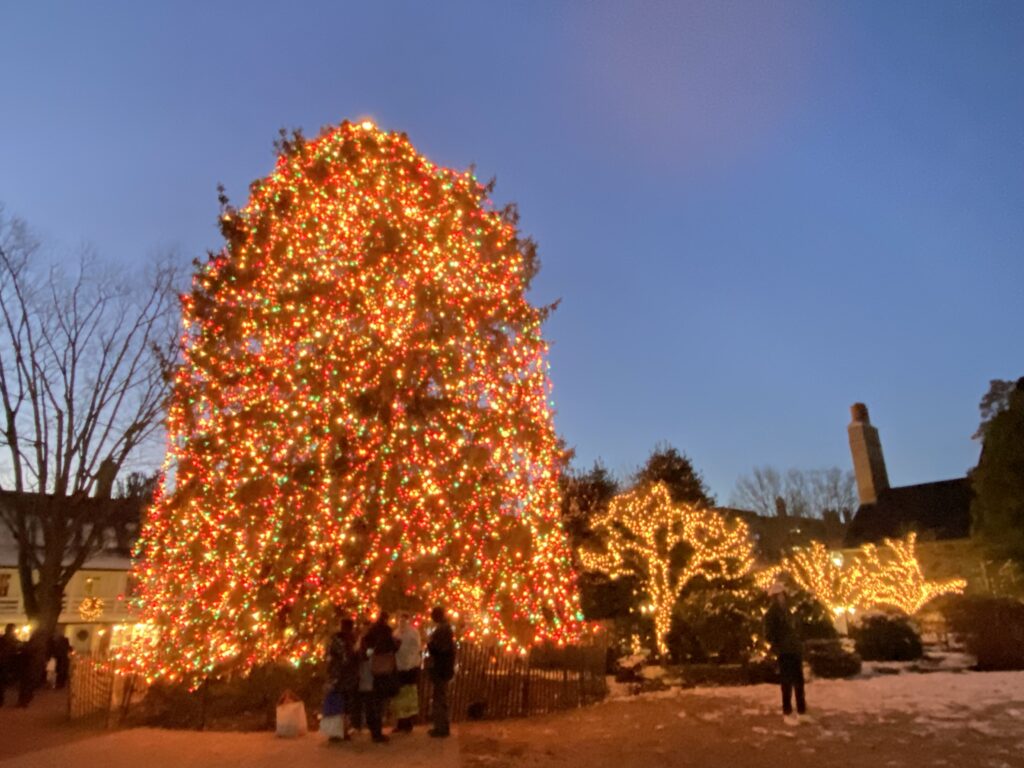
Beautiful Christmas tree at Palmer Square
Three hundred and fifty-four sleeps till Christmas
Never too early to mention that “Stockbridge Main Street at Christmas” festivities are December 6th-7th in 2025 with more details about weekend events via the Stockbridge Chamber of Commerce. No matter what the weather brings, visitors will receive a warm welcome and be in good company.
(Source: stockbridgechamber.org, ormanrockwellmuseum.org, redlioninn.com, dailyartmagazine.com, npr.org, smarthistory,org, crystalbridges.org, americanart.si.edu, brooklynmuseum.org, berkshireeagle.com, boston.com, chronline.com, rauantiques.com, connecticutthistory.org, ctpublic.org, theguardian.com, gurneyjourney.blogspot.com, printmag.com, southlandcollierescue FB (Dogs Society), nationalpurebreddogday.com, bostonmagazine.com, doctorsaxhouse.com, avingplaces.org, wiki)
“A Return to Christmas in Stockbridge” All Rights Reserved ©2025 Kathleen Helen Levey
